clock This article was published more than 1 year ago

Biden’s revised Cuba policy creates more options for U.S. travelers
The united states just approved flights to airports beyond havana and will restore the group tours banned under trump.

Americans who want to travel legally to Cuba will have more options after the Biden administration announced it was undoing some of the restrictions President Donald Trump imposed before the pandemic.
While a timeline for all of the changes is not yet clear, travelers should eventually be able to choose from flights to more destinations and take the kind of group-based educational trips that have been off-limits for nearly three years.
Under an order issued Wednesday by the U.S. Transportation Department, airlines will again be allowed to fly to Cuban destinations beyond Havana, an avenue that was cut off in late 2019. Public charter flights will also be permitted to go to airports outside Havana after being suspended in early 2020.
The Transportation Department issued the order rescinding the Trump-era restrictions after a request this week from Secretary of State Antony Blinken. He wrote that scheduled and charter air services could resume “effective immediately” once the department took action.
That formal request followed a May 16 announcement that the Biden administration was taking measures, including allowing the additional flights, to “increase support for the Cuban people in line with our national security interests.”
As Biden eases Trump’s sanctions, Cubans hope for an economic lift
Peggy Goldman, president and co-owner of two travel companies that bring visitors to Cuba — Friendly Planet and Insight Cuba — called the permission to add flights “wonderful news.”
“It makes it possible to enjoy much more of the island, and having these additional flights is a hallelujah moment for us,” she said. She added that her companies have been “badgering” airlines on a daily basis about increasing service.
U.S. carriers that offer scheduled flights to Havana, including American Airlines, JetBlue and Southwest, told The Washington Post this week — before the DOT’s order — that they did not have any additional services to announce. American Airlines flew to five destinations in addition to Havana until December 2019, and JetBlue once flew to three cities beyond the capital city.
“While we do not have any news to share at this time regarding changes to our operations in Cuba, we regularly evaluate new opportunities throughout our network,” JetBlue said in a statement.
Cuba reopened to visitors in November after closing its borders earlier in the pandemic.
Can Americans travel to Cuba? Yes, but it’s complicated.
U.S. officials have said that a popular authorized way for groups of travelers to visit Cuba — called “people-to-people” trips — will be back at some point. The Trump administration eliminated the option in mid-2019. The State Department said it would reinstate the option, along with other categories of group educational travel and some additional travel connected to professional meetings and research.
“We’ll certainly ensure travel is purposeful and in accordance with U.S. law. And we’ll note something that President Biden had said often, which is his belief that Americans are the best ambassadors for democratic values,” a senior administration official said on background during a press call last month. “And facilitating group people-to-people travel will allow for greater engagement between the American people and the promotion of their democratic values.”
The State Department did not release a timeline for reopening that category of travel, but it said in a statement that the administration is “working expeditiously to implement these changes, via regulatory amendments and other steps on an expedited basis.”
Collin Laverty, founder of Cuba Educational Travel, said people-to-people trips were a prominent way to visit Cuba before the Trump administration prohibited them. He described those trips as “having a full-time schedule that involves meaningful interaction with the Cuban people” — though independent tourism is not allowed.
Americans have been allowed to visit the island under categories that remain legal, including family visits, religious activities, competitions, educational activities and professional research, and meetings. After the Trump administration eliminated the “people to people” option, first for individuals and then for groups, most travelers opted to visit under the “support for the Cuban people” category.
Under that option, travelers need to have a full-time schedule of activities that enhance contact with locals, support civil society in Cuba, result in meaningful interaction with residents or promote independence from Cuban authorities, The Washington Post reported in 2019.
2019: Trump administration ends group travel to Cuba by Americans
The two categories were similar, but supporting the Cuban people required more direct aid to locals on the ground. Some tour operators told The Post when the changes were first announced a few years ago that they were skipping attractions such as Ernest Hemingway’s house and famous cemeteries. To keep their programming in compliance, they said, they would meet with craftspeople who make humidors instead of going to cigar factories, and they would visit artists in a studio cooperative instead of going to a museum.
David Lee, founder of Cultural Cuba, has always provided trips that meet the requirements of supporting the Cuban people and calls it “the best way to go by far.” But still, he and others said, the news about Trump restrictions being dropped had led to an increase in inquiries.
“Some of the changes that the Trump administration made definitely made people think they could not come to Cuba,” he said. “If this announcement has people believing, ‘Oh, it’s open again’ — even though it was always open ... and at least leads people to put Cuba back on their list as a destination, awesome.”
Laverty said he expects the return of U.S. travelers to Cuba to be slow, noting that he doesn’t see any regulatory changes that would lead to an “avalanche” in demand.
While the Biden administration’s goal is to expand authorized travel to Cuba, the State Department said the recently announced moves are not a return to the Obama-era policies that allowed cruise ships to visit the island and individual travelers to embark on people-to-people trips.
In Cuba, a desperate search for milk
Other Trump crackdowns prohibiting travelers from staying in military- or government-owned hotels remain in effect. They pose continued challenges to travelers and tour groups who have to find accommodations without those government or military ties.
“With new flights and group People to People programs being announced, more travelers will be able to visit Cuba safely but they will need more safe places to stay,” Michael Zuccato, CEO of Cuba Travel Services, said in an email.
Laverty said the last decade has brought “incredible development” in private-sector lodging, including privately owned apartments, rooms and boutique hotels. His company will sometimes split groups between multiple properties if needed.
“It definitely adds an extra logistical layer,” he said. “Trying to look at the positive side, it’s a really cool experience” where guests get to interact with their host and learn more about what it’s like to live in Cuba.
With economic hardships and severe shortages in Cuba that led to widespread protests last year, Laverty said he was concerned about what the travel experience would be like when his company started bringing Americans back earlier this year.
“What we’ve found over the last few months is U.S. travelers have really been exposed to shortcomings and challenges and also support Cubans through their travel and get an honest picture of the good and the bad in Cuba and still have a really great experience,” he said.
More travel news
How we travel now: More people are taking booze-free trips — and airlines and hotels are taking note. Some couples are ditching the traditional honeymoon for a “buddymoon” with their pals. Interested? Here are the best tools for making a group trip work.
Bad behavior: Entitled tourists are running amok, defacing the Colosseum , getting rowdy in Bali and messing with wild animals in national parks. Some destinations are fighting back with public awareness campaigns — or just by telling out-of-control visitors to stay away .
Safety concerns: A door blew off an Alaska Airlines Boeing 737 Max 9 jet, leaving passengers traumatized — but without serious injuries. The ordeal led to widespread flight cancellations after the jet was grounded, and some travelers have taken steps to avoid the plane in the future. The incident has also sparked a fresh discussion about whether it’s safe to fly with a baby on your lap .

U.S. lifts some Trump-era restrictions on Cuba, including limits on travel and remittances
The Biden administration announced Monday it will reverse some Trump-era restrictions on Cuba, including limits on travel and remittances, and boost visa processing in Havana.
The changes, the most significant in U.S.-Cuba policy since President Joe Biden took office, follow a lengthy policy review.
A senior U.S. official said the Biden administration will continue to elevate the matter of human rights, the treatment of political prisoners and labor rights in Cuba, as well as "empowering the Cuban people to determine their own future."
The U.S. will allow charter and commercial flights to airports outside Havana. During the Trump administration, flights to Cuba were restricted to only Havana’s airport. A senior administration official also said that the U.S. will reinstate educational travel in groups under a general license but that it is not reinstating individual “people-to-people” educational travel.
Caps of $1,000 per quarter on family remittances will be lifted. Western Union closed its offices in Cuba in 2020 after President Donald Trump sanctioned its partner company, Fincimex, run by the military. Fincimex will remain under U.S. sanctions. The senior government official said the U.S. has underscored to Cuba the need to find a civilian entity that could process remittances to expand electronic payments.
Visa processing at the embassy in Havana will be increased, and the Cuban Family Reunification Parole Program will be reinstated. During the Trump administration, visa processing was greatly reduced after embassy personnel were affected by mysterious health incidents that became known as “Havana syndrome.”
For the past few years, the U.S. has not processed the 20,000 annual migrant visas it agreed to almost three decades ago.
Cuba has been facing a severe economic crisis, with shortages in food and medicine, as well as soaring inflation due to sanctions and the coronavirus pandemic.
The number of Cuban migrants arriving at the U.S.-Mexico border has soared in recent months. Nearly 100,000 have been apprehended by Customs and Border Protection since October.
Cuban Foreign Minister Bruno Rodríguez wrote on Twitter that the U.S. government’s announcement was “a limited step in the right direction” but criticized the U.S. for not modifying the embargo or removing Cuba from the list of state sponsors of terrorism.
Biden vowed when he was campaigning in 2020 that he would reverse “the failed Trump policies that inflicted harm on Cubans and their families.” His administration had been conducting a lengthy review of Cuba policy.
Sen. Bob Menendez, D-N.J., a Cuban American who is chairman of the Foreign Relations Committee, said in a statement that the administration’s announcement “risks sending the wrong message to the wrong people, at the wrong time and for all the wrong reasons.”
“I am dismayed to learn the Biden administration will begin authorizing group travel to Cuba through visits akin to tourism,” Menendez wrote. “To be clear, those who still believe that increasing travel will breed democracy in Cuba are simply in a state of denial.”
The U.S. will host the Summit of the Americas in Los Angeles the week of June 6. Administration officials have been contending with blowback from leaders of some leftist countries after some U.S. officials hinted that Cuba, Venezuela and Nicaragua would not be invited.
Mexican President Andrés Manuel López Obrador has said that “if everyone is not invited, I will not go.”
Follow NBC Latino on Facebook , Twitter and Instagram .
Carmen Sesin is a reporter for NBC News based in Miami, Florida.
Enable JavaScript
Please enable JavaScript to fully experience this site. How to enable JavaScript
Travel to Cuba
U.s. to cuba travel policy.
Flying to Cuba from or through the U.S. for tourism is not allowed. There are 13 permitted reasons for travel:
- Family visits
- Official business of the U.S. government, foreign governments and certain intergovernmental organizations
- Journalistic activities
- Professional research or professional meetings
- Educational academic activities
- People-to-people exchanges (for travel related transactions purchased prior to June 5, 2019)
- Religious activities
- Public performance, clinics, workshops, athletic or other competitions and exhibitions
- Support for the Cuban people
- Humanitarian projects
- Activities of private foundations or research or educational institutes
- Exportation, importation, or transmission of information or informational materials
- Travel related to certain authorized export transactions
Federal regulations on travel to Cuba Opens another site in a new window that may not meet accessibility guidelines
If you aren't traveling for one of the 13 reasons, there are 2 other ways to enter Cuba:
- With a license issued by the U.S. Office of Foreign Assets Control (OFAC)
- As a Cuban National returning home
Apply for an OFAC license Opens another site in a new window that may not meet accessibility guidelines
If you don't qualify for one of the 13 permitted reasons, have an OFAC license or identify as a Cuban national returning home, you will not be permitted to travel to Cuba.
Additional travel requirements
Everyone entering Cuba must have a visa and health insurance with coverage in the area. For insurance, a $25 fee is added to your ticket price.
Special visa requirements apply to Cuban-born travelers, regardless of citizenship.
Preparing for travel
What to bring.
- Valid passport
- Valid visa, travel card or Cuban passport
You can buy a travel card online or at Miami (MIA) before departure.
Buy travel card Opens another site in a new window that may not meet accessibility guidelines
Few U.S.-issued cards are accepted in Cuba and service isn't guaranteed. Contact your bank before traveling.
Online check-in for flights to Cuba is unavailable. You must check in at the airport to provide reason for travel – allow up to 3 hours to complete the process. If you're flying from Miami (MIA), look for the 'Cuba Ready' booth by Checkpoints 1 and 2 to check your documents and get your boarding pass stamp.
Changes to bag limitations for checked bags have been updated as of March 14, 2023. Bag fees may apply for checked bags.
- Checked bag policy
- Bag limitations
Connections
When you get to the gate at your connecting airport, look for the 'Cuba Ready' booth to check your documents and get your boarding pass stamp.
We’re sorry, this site is currently experiencing technical difficulties. Please try again in a few moments. Exception: request blocked

Biden Eases Trump-Era Cuba Travel Restrictions
There will be more flights to the caribbean island-country and organized people-to-people group tours will resume..
- Copy Link copied

Group people-to-people travel to Cuba will once again be permitted under the new regulations.
Photo by EvijaF/Shutterstock
Nearly five years ago, the Trump administration put policies into place that severely restricted travel between the United States and Cuba. On Monday, the Biden administration moved to undo some of those measures and make travel between the two countries somewhat easier once again.
The U.S. State Department issued a statement that among the new measures the Biden administration will put into place will be allowing more flights between the U.S. and Cuba, expanding service beyond Havana. But the biggest change for would-be leisure travelers? Group people-to-people tours and educational travel will be reinstated. The Biden administration said it will also allow for some business travel related to professional meetings and research.
The administration did not go as far as to approve individual people-to-people travel , a policy that was implemented by President Obama and allowed for individual travelers to go to Cuba and engage in cultural and educational exchanges. But the fact that group people-to-people travel to Cuba will be permitted again means that certain licensed tour operators and travel companies approved by the U.S. government (such as InsightCuba , Intrepid Travel and G Adventures ) will get the green light to relaunch organized group tours from the U.S. to Cuba. Their emphasis will be on purposeful cultural and educational interactions with the people of Cuba (hence the term “people-to-people” travel).
“With these actions, we aim to support Cubans’ aspirations for freedom and for greater economic opportunities so that they can lead successful lives at home,” said State Department spokesman Ned Price. “We continue to call on the Cuban government to immediately release political prisoners, to respect the Cuban people’s fundamental freedoms and to allow the Cuban people to determine their own futures.”
In addition to loosening travel restrictions, the U.S. government will remove the current $1,000-per-quarter limit on family remittances (money that is sent to family members in Cuba from the U.S.), and will allow non-family remittance, which can support independent Cuban entrepreneurs. Former President Donald Trump had increased sanctions against Cuba, including the cancellation of permits to send remittances.
These measures, in addition to the pandemic, contributed to an economic crisis in Cuba, where people have been suffering from shortages of basic products, power outages, and rationing, the Associated Press reported. The economic situation led to thousands of people protesting across Cuba on July 11, 2021, the largest such protests on the island in decades.
The Biden administration said it will also move to reinstate the Cuban Family Reunification Parole Program, which has a backlog of more than 20,000 applications, and increase consular services and visa processing in Havana, which resumed on May 3.
As for when the new policies will go into effect, the Biden administration said it is “working expeditiously” to put these changes into effect.
Associated Press contributed reporting.
>> Next: Tracing the Roots of New Orleans Jazz on a Music-Centric Trip to Cuba

Situation in Haiti March 29, 2024
U.s. citizens in haiti, update january 10, 2024, information for u.s. citizens in the middle east.
- Travel Advisories |
- Contact Us |
- MyTravelGov |
Find U.S. Embassies & Consulates
Travel.state.gov, congressional liaison, special issuance agency, u.s. passports, international travel, intercountry adoption, international parental child abduction, records and authentications, popular links, travel advisories, mytravelgov, stay connected, legal resources, legal information, info for u.s. law enforcement, replace or certify documents.
Share this page:
Cuba Travel Advisory
Travel advisory january 5, 2024, cuba - level 2: exercise increased caution.
Reissued with updates to crime information.
Exercise increased caution in Cuba due to crime .
Country Summary: Petty crime is a threat for tourists in Cuba. Also, violent crime, including armed robbery and homicide, sometimes occurs in Cuba.
Travel outside of the Havana area for U.S. Embassy employees requires a special notification process which may affect the Embassy’s ability to provide emergency assistance to U.S. citizens in Cuba.
Read the country information page for additional information on travel to Cuba.
If you decide to travel to Cuba:
- Be aware of your surroundings.
- Do not physically resist any robbery attempt.
- Do not display signs of wealth, such as wearing expensive watches or jewelry.
- Enroll in the Smart Traveler Enrollment Program (STEP) to receive Alerts and make it easier to locate you in an emergency.
U.S. citizens should always exercise caution when traveling abroad:
- Follow the Department of State on Facebook and Twitter .
- Review the Country Security Report for Cuba.
- Prepare a contingency plan for emergency situations. Review the Traveler’s Checklist .
Travel Advisory Levels
Assistance for u.s. citizens, search for travel advisories, external link.
You are about to leave travel.state.gov for an external website that is not maintained by the U.S. Department of State.
Links to external websites are provided as a convenience and should not be construed as an endorsement by the U.S. Department of State of the views or products contained therein. If you wish to remain on travel.state.gov, click the "cancel" message.
You are about to visit:

Travel Insurance for Cuba: Demystifying Travel Insurance Cuba Requirements
Did you know that ALL visitors to Cuba must have proof of comprehensive insurance coverage for Cuba to enter the country? Many travelers planning a trip to Cuba are left frantically messaging us “what travel insurance do I need for Cuba?!?!” once they’ve already started planning their trip.
While meeting the requirement for health insurance for Cuba isn’t a hassle, it’s important to understand the requirements before you arrive in Cuba, so you avoid unexpected expenses and hassles once you arrive.
Keep reading our guide to the easiest (and least expensive!) way to find the travel insurance Cuba requires . Plus, we’re covering healthcare in Cuba for tourists and the options for medical insurance to Cuba for US citizens .
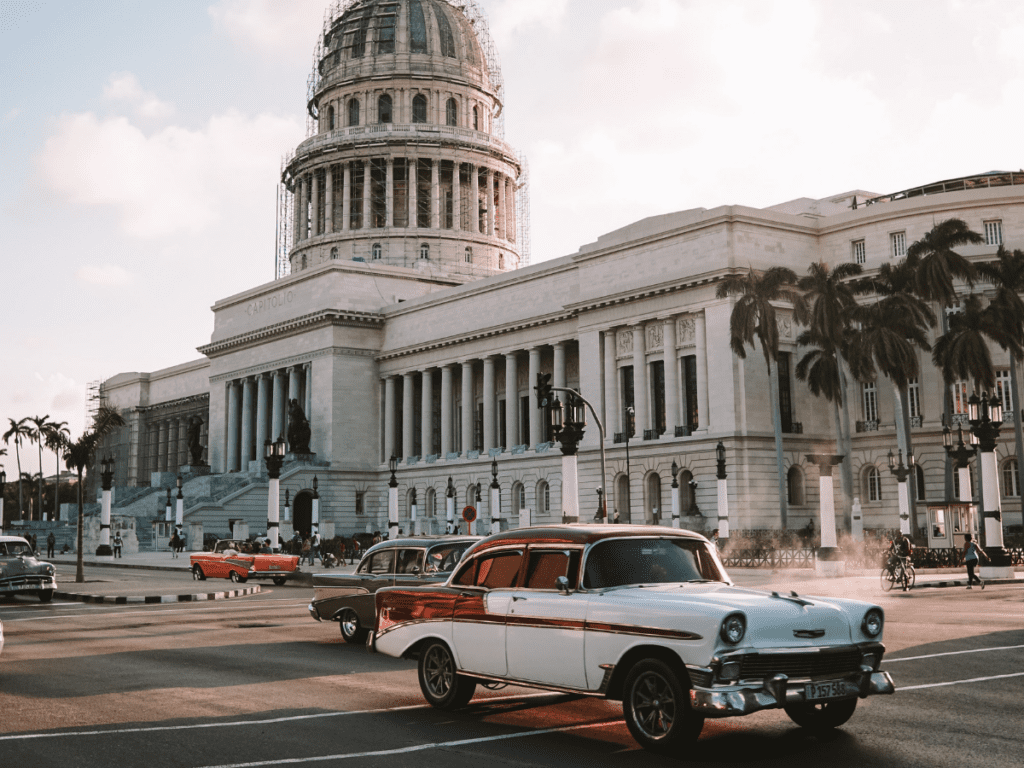
This post contains affiliate links that may reward me monetarily or otherwise when you use them to make qualifying purchases – at no cost to you. As an Amazon Associate, I earn from qualifying purchases. For more information, please read our disclosure policy .
Do I Need Insurance for Cuba?
Yes, you need insurance for Cuba. Proof of insurance coverage is required for all travelers to Cuba! Since 2010, Cuba has required that all visitors to the country have insurance coverage that would cover any potential medical expenses that could arise during their time in Cuba.
Cuba travel insurance proof must be available to immigration officers when being stamped into the country. Thankfully, most insurance plans that cover Cuba travel are quite affordable and won’t significantly affect your travel budget.
However, the vast majority of travel insurance companies do not cover Cuba insurance plans. To complicate matters even further, many that do cover trips to Cuba do not cover American citizens traveling to Cuba .
Medical insurance to Cuba for US citizens is only offered by a few companies. If you regularly purchase travel insurance, or even if you have long-term travel insurance , don’t expect your usual company of choice to be able to cover you as they normally do!
Thankfully there are a few fantastic companies that offer easy and inexpensive travel insurance for Cuba , so once you know where to look, you’ll find some great options.
For most travelers headed to Cuba, we recommend Visitors Coverage travel insurance. Visitors Coverage offers flexible and affordable travel insurance policies that cover all travelers – even travelers from the United States! – and go above and beyond the requirements for entering the country.
Travel Insurance Cuba
Many airlines will ask when booking a ticket if you have health insurance for Cuba that covers your stay and remind you that it is necessary to have it before departing. If you’re not required to show proof of insurance to book a ticket, you may be reminded of the requirement when booking a flight .
Some airlines have offered medical insurance coverage for travelers to Cuba as part of the price of a ticket, though these regulations change frequently.
If you’re unsure if your airline ticket covers the cost of Cuba travel insurance, I recommend getting an inexpensive travel insurance plan from Visitors Coverage for added support and security, plus all the travel benefits that travel insurance can cover .
This will also save you a headache when you pass through immigration!
Plan a Trip to Cuba
- The Ultimate Travel Guide to Cuba
- How to Get Wifi and Use the Internet in Cuba
- Where to Stay in Havana
- Ultimate Guide to Trinidad, Cuba
Cuba Travel Insurance Proof
Travelers must have proof of insurance for Cuba when arriving in the country and should be prepared to show it when passing through immigration.
Immigration is not always consistent in asking visitors to present this information – I am occasionally asked for proof of health insurance for Cuba when entering Cuba, but other times it isn’t mentioned!
Regardless, you shouldn’t take a chance and arrive in Cuba without a Cuban health insurance plan that covers you, and proof of coverage. If you arrive without it, you will be forced to purchase a local policy at whatever the cost or you could be denied admission to Cuba.
What Travel Insurance Do I Need for Cuba?
There are no specific requirements for types of documents that demonstrate proof of health coverage – a copy of your policy should be more than enough .
There is also no specific coverage amount required for admission – as long as your policy covers medical and health expenses in Cuba, it is acceptable.
Cuba does not maintain a list of accepted companies to meet their insurance, so make sure that your insurance plan shows that it covers you while in Cuba.
Make sure to bring Cuba travel insurance proof (a hard copy or a digital copy of your plan is fine – but make sure it’s downloaded before you land !) that clearly shows coverage for health expenses and healthcare in Cuba for tourists for the duration of your time in Cuba.
Health Insurance for Cuba
Cuba’s requirement that visitors to the island are insured for any potential medical expenses that may arise during travel specifically focuses on health coverage .
Even if you have private health insurance at home, you can not assume that your home health insurance covers you in Cuba – it is very rare that domestic healthcare plans cover international travel , and even less common that they function as Cuban health insurance.
The easiest way to cover this requirement is by purchasing a Visitors Coverage travel insurance plan that covers potential medical expenses that could be incurred in an emergency.
These short-term health insurance plans for Cuba give you the coverage you need to enter the country, but they also provide the extra benefits that come with travel insurance plans.
Healthcare in Cuba for Tourists
Healthcare in Cuba is considered quite good should you need it , and it is readily available to all. Cuba is more frequently becoming a destination for healthcare “tourism” for those from other countries looking for more affordable yet quality procedures.
Healthcare is provided free of charge to all Cubans but is not freely provided for foreigners. Cuba also designates certain clinics and hospitals as those that foreigners are able to use.
Foreigners generally can not be attended by the average physician in Cuba, so walking into any clinic you come across while in Cuba won’t be an option – though staff there should know where to point you.
In Havana, most foreigners are attended at these locations:
- Clínica Central Cira Garcia in the Miramar neighborhood.
- Hospital Hermanos Ameijeiras in Central Havana along the Malecón.
Many larger hotels and resorts provide services of doctors that can make visits to their guests or will be able to point to medical care should you need it. Travel insurance Cuba plans, including those from Visitors Coverage , will generally cover this even if you don’t have to leave your hotel!
Plus, even if you’re staying in a rental apartment, the host should always be able to direct you to assistance.
Travel Insurance for Cuba
While Cuba doesn’t specifically require a travel insurance policy (rather than other medical insurance policies), choosing a travel insurance policy that covers health and medical expenses in case of an emergency while traveling is the best way to meet health insurance requirements.
These travel insurance for Cuba policies provide you with the coverage you need and more.
Travel insurance policies also give you additional protection that can make or break your trip. Most policies include reimbursement for canceled or delayed trips, covering things like stolen travel gear in case of a robbery, and much more.
What to Pack for Cuba
Check out our Ultimate Cuba Packing List to help you pack for your trip – we’re sharing exactly what to bring to Cuba and what we never travel without.
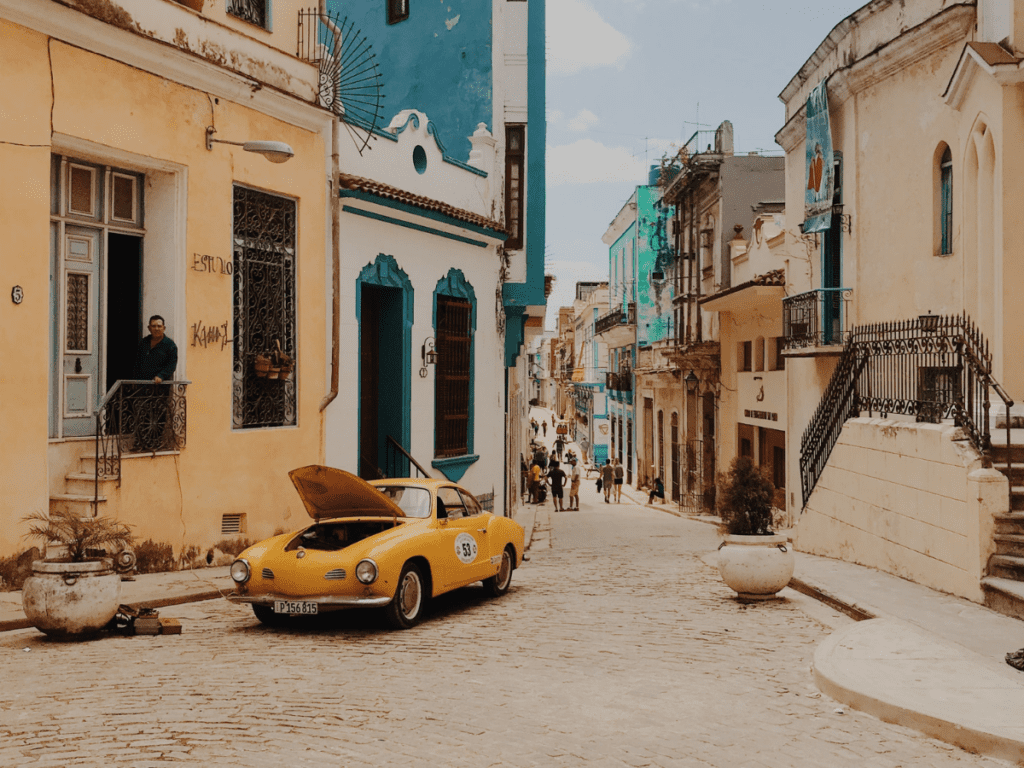
Booking Cuba Travel Insurance
- Don’t assume that coverage that comes standard with your travel credit card will cover you – most of these policies do not cover travel insurance for Cuba, specifically! Cuba is a unique travel destination and comes with some challenges, travel insurance being one of them.
- Don’t wait to book last minute with the travel insurance company you normally use when traveling – only a few select insurance companies cover travel to Cuba .
- Check out Visitors Coverage for the best travel insurance for Cuba: they offer coverage for travelers from all countries!
Best Travel Insurance for Cuba
Of the few travel insurance companies that provide coverage for travel to Cuba, we always recommend travelers start by checking out Visitors Coverage . This travel insurance company is well respected, has a great range of policies for all budgets and needs, and has fantastic customer service.
If you don’t choose Visitors Coverage , make sure before booking that you select a travel insurance plan that covers people from your country of residency – there are more coverage limitations on travelers from the United States (and some from Canada as well).
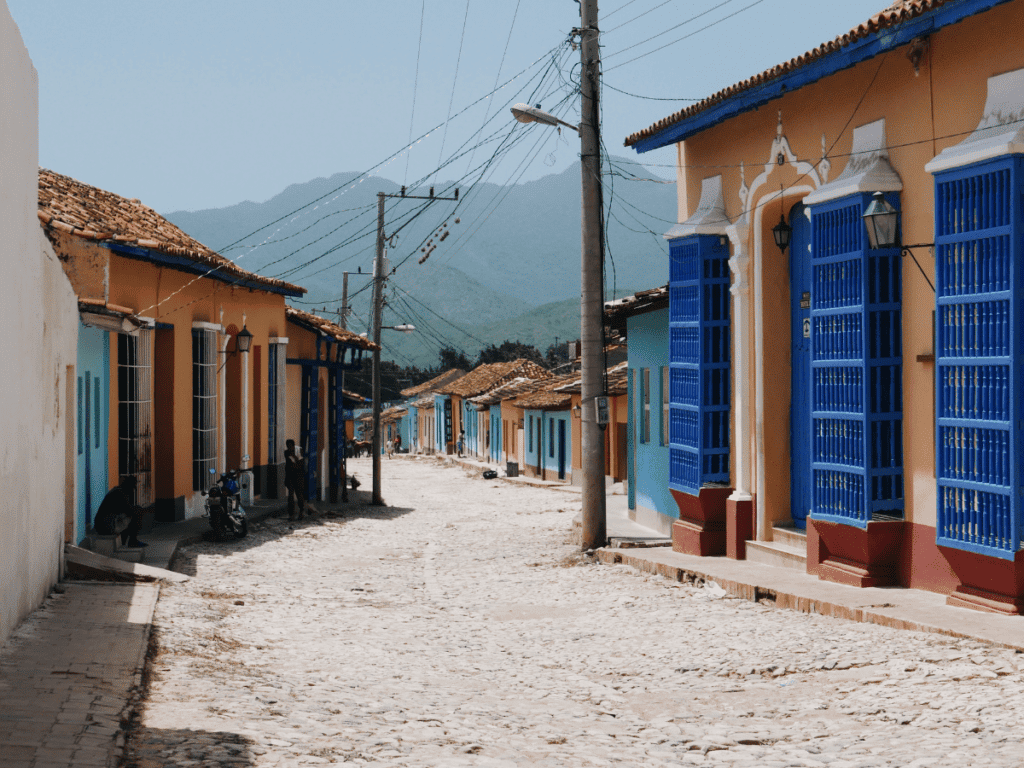
Visitors Coverage
Visitors Coverage is a fantastic company with nearly 20 years of experience. Not only do they offer a variety of plans for covering your trip to Cuba, but their website is extremely user-friendly !
Travel insurance can sometimes be confusing or dense, but they make it so easy and straightforward. You can get quotes in just a few minutes – it’s a breeze.
Visitors Coverage covers both American citizens and citizens from other countries and offers a variety of different travel insurance Cuba options that are easy to choose from. Visitors Coverage is by far my favorite choice for Americans and Canadians traveling to Cuba.
Medical Insurance to Cuba for US Citizens
You may be asked questions when purchasing about your travel plans to Cuba if you are traveling from the United States. Specifically, you may be asked whether your travel is “ approved ” or “ legal .”
For more on the twelve categories of authorized travel for American citizens, check out our article Can Americans Travel to Cuba? for more about legal travel to Cuba.
The most common type of approved travel to Cuba for American citizens is called “ Support for the Cuban People ” travel. You can simply state this as your reason for travel to Cuba if asked about the purpose of travel when purchasing insurance.
For Americans looking for the best travel insurance for Cuba, Visitors Coverage is by far the best bet. Very, very few companies cover travel to Cuba, so Visitors Coverage is your best option!
Read More for Travel to Cuba
- Exploring Old Havana: The Ultimate Guide

Carley Rojas Avila
Carley Rojas Avila is a bilingual travel writer, editor, content marketer, and the founder of the digital travel publications Home to Havana and Explorers Away. She is a serial expat and traveler, having visited 40+ countries and counting. Carley has written for publications like Travel + Leisure, MSN, Associated Press, Weather Channel, Wealth of Geeks, and more. Find her front row at a Bad Bunny concert, befriending street cats, and taste-testing every pizza in Havana.
20 things to know before visiting Cuba

Jan 5, 2024 • 8 min read
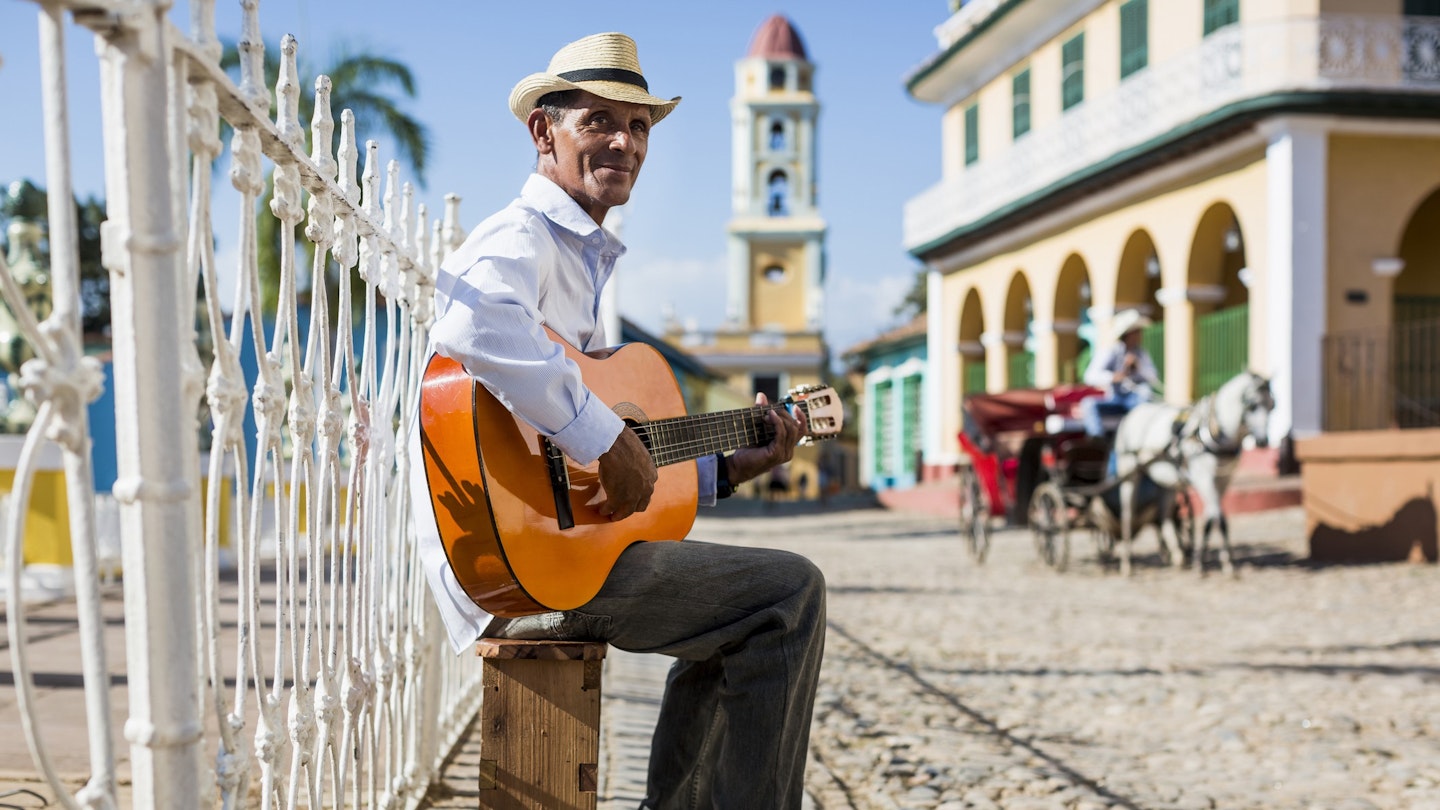
Be ready for your visit to Cuba with these top tips on what to expect © Westend61 / Getty Images
To a first-time traveler, Cuba can seem like a confusing jigsaw puzzle, particularly if you’re breaking free of the resorts and traveling around on your own.
The Spanish spoken here is fast and hard to decipher, many streets have two different names and the country’s fickle and highly complicated monetary situation could fill its own guidebook.
To help you be prepared, here is everything you need to know before planning a trip to Cuba.
1. Double-check your insurance
You are required to have medical insurance to visit Cuba and will need to bring digital or printed proof of your policy. Random checks are made at the airport. If you arrive without insurance, you’ll be asked to buy a Cuban policy at the airport for US$30.
2. Fill out your passenger information in advance
Cuba uses an online form called D’Viajeros to gather traveler information, including immigration and health data, in advance of travel. Fill out the form digitally up to 72 hours before your arrival in Cuba.
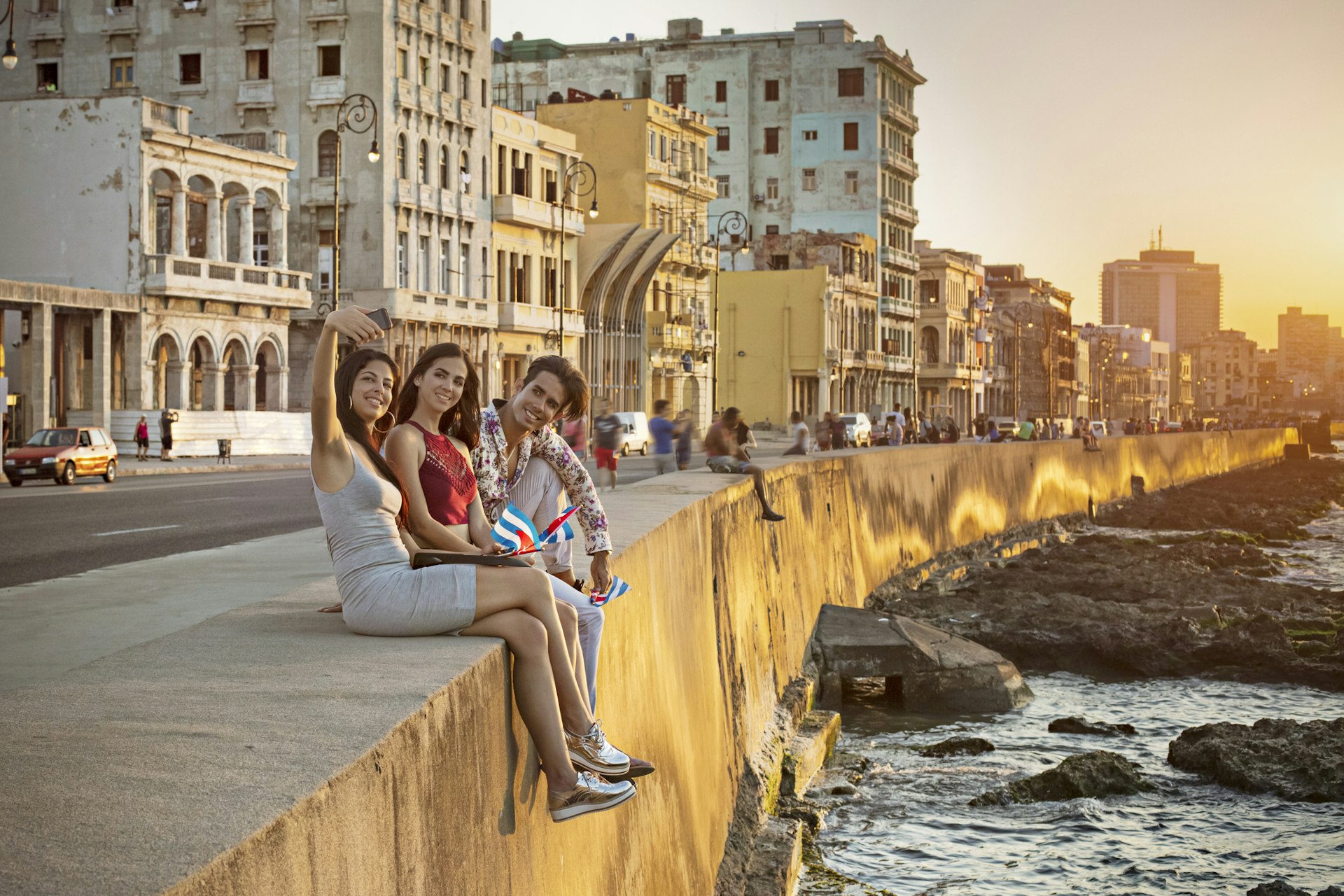
3. Every visitor needs a tourist card
To enter Cuba, all visitors need to present a completed tourist card . It’s usually available through your airline (ask when booking) and included in the price of your ticket.
If not, you can purchase one through a Cuban travel agency. Costs range from US$50 to US$85. Citizens of 20 African and Asian countries require a formal visa to enter Cuba. Check the situation for your country before booking.
4. Cash and currency: it’s complicated!
Money in Cuba is confusing, even to Cubans . Since the country abolished convertibles (CUC) in January 2021 and took the US dollar out of circulation in June 2021, there has been massive inflation and the emergence of a rampant black market. The knock-on effect is a bewildering dual economy.
The official currency of Cuba is the Cuban peso (CUP), but foreign currencies are also widely accepted, especially by private businesses who need hard cash to buy non-rationed goods in MLC (freely convertible currency) shops.
State-run enterprises and banks use official exchange rates. However, the prices of the superior services offered by private businesses generally reflect black market exchange rates.
Hence a main dish in a private restaurant in Havana will cost around CUP$500 (US$21). That’s an expensive meal if you’re paying in pesos bought from a Cuban bank.
However, most private restaurants will also accept payment in euros using a more favorable exchange rate. Some will even have a separate menu with prices printed in euros.
When buying something from a private business – be it a restaurant, casa particular (private accommodation) or taxi service – it’s usually best to pay in a foreign currency. Always ask upfront what currencies they accept and what exchange rate they use for their published peso prices.
Euros is the most interchangeable currency and the one preferred by Cubans. You can also use and exchange Canadian dollars and pound sterling.
US dollars still circulate on the black market, but we don’t recommend bringing them. The best bet, when you arrive, is to keep most of your money in a foreign currency and only change small amounts into pesos for incidentals like museum entry, concert tickets and tips.
5. MLC is a currency with no cash form
The Moneda Libremente Convertible (MLC) is a currency approved by the Cuban government in 2020 that can be used in certain shops to buy higher-end goods.
The currency doesn’t exist as cash and its value is pegged with the US dollar. It’s used mainly by Cubans with special magnetic cards.
Tourists needn’t worry too much about MLC$, although prices will sometimes be displayed in the currency in state-run enterprises such as cigar shops or airport souvenir stores where you can pay with a non-US credit card.
6. Only some credit cards will work
Credit cards are increasingly popular in Cuba and in many state-run businesses are the preferred (and sometimes only) method of payment.
Despite promises made in the Obama era, credit cards linked to US banks are not accepted. Private businesses almost never have credit card machines, meaning your only option is cash.

7. Pack your favorite casual clothes – and men need a shirt
Dress in Cuba is casual, so you can leave your high heels and tux behind. The only real dress code is in cinemas, theaters and nightclubs, where male patrons are required to wear long trousers and shirts with sleeves or half-sleeves.
8. Cuban Spanish is fast and often informal
If you speak Spanish, you’ll find that Cubans mostly use the informal tú form of address, rather than usted . In the plural, ustedes is used over vosotros .
If you don’t know someone, it’s best to address them as señor or señora , though you’ll hear Cubans use all kinds of substitutes such as socio , hermano , papa , chica/o and asere .
9. Cuban cities are where the streets have two names
In most Cuban cities, the streets have two names: a contemporary one that is noted on maps and marked on street signs, and a pre-revolutionary one that is still used widely by the locals.
This can become confusing, especially when locals, unaware of the new street names, start giving out directions or addresses using the colloquial nomenclature. Always double-check addresses and, if possible, get two potential names for the street you’re looking for.
10. Understand the local art of queueing
Cubans have to endure a lot of long waits in boring queues, so they’ve invented a way of doing it that doesn’t involve standing in line. In a Cuban queue, you simply roll up at the bakery/clinic/visa office and yell out to the assembled masses, "Quien es último?" (Who’s last?).
Hopefully, someone in a 400m vicinity will answer your polite entreaty with the word, "yo" (me). That person is your yardstick. As long as they’re still around, feel free to go for a walk, sit in the lotus position or buy ice cream. When they get called up, be on your toes, you’re next!
11. Ask questions more than once
Thanks to heavy bureaucracy, answers to simple requests aren’t always straightforward – or even correct. Probe politely and ask at least five different people before you make important decisions.
12. Bring something to keep you warm on a cold bus journey
Cuba has a countrywide state-run bus service called Víazul that connects all of the main cities and some of the smaller towns. Prices are charged in MLC$ (the same rate as the US$) and tickets must be paid for with a credit card either in person or online.
A second service called Conectando, run by Cubanacán, also puts on buses in peak season along some of the more popular routes. Bring a sweater/jacket for long bus rides – the air-conditioning is akin to a chilly day in Vancouver.

13. Cuba is considered a safe place to travel
Cuba is one of the safest countries in the Americas in terms of violent crime. Pick-pocketing is more common but not rampant, and is mostly avoidable if you follow a few basic precautions: Wear a money belt, use safe boxes in hotel rooms and don’t flash your cash in public.
14. Solo female travelers report receiving unwanted attention
Solo female travelers report experiencing a good deal of unwanted attention, but it didn't necessarily spoil their enjoyment of traveling in Cuba.
There is a fine line between being open and friendly and harassment, and some men can cross that line by being overly familiar or asking too many personal questions. Learn some key phrases in Spanish that make it clear when you're not interested.
15. Beware of forgeries
Never change money with unlicensed traders on the streets. You run the risk of receiving estafas (forged notes).
16. Bring your own medicines
On one level, Cuba has a good health system (it invented and quickly distributed three COVID-19 vaccines); on the other, it is perennially short of pharmaceuticals.
Bring all the prescription medications you think you’ll need, as well others you might like ibuprofen or paracetamol. If you’d like to donate some medicines to the people of Cuba, it is currently possible to bring in 10kg of medical supplies tax-free (pack them in a separate bag).
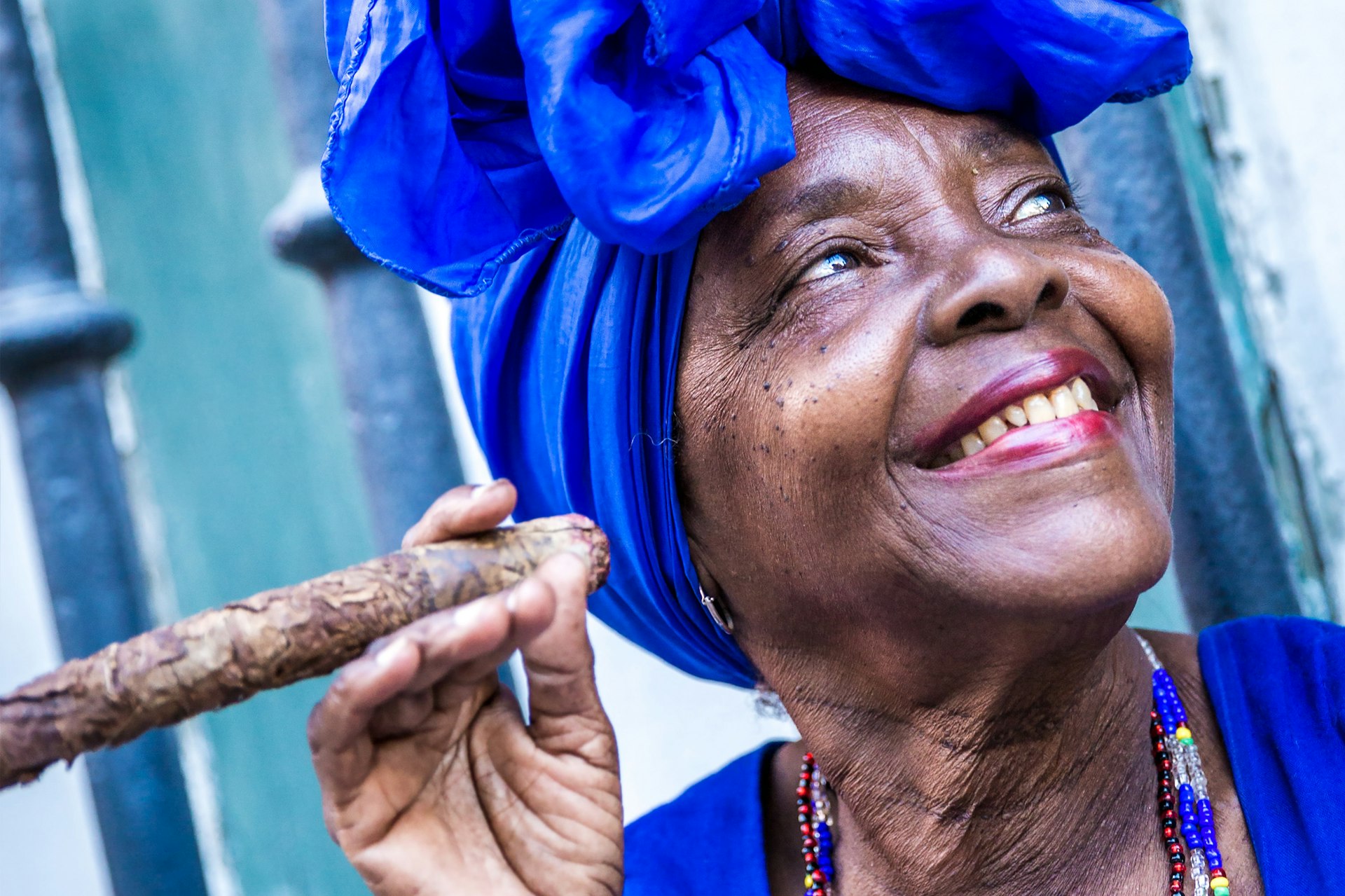
17. Avoid dodgy cigars
Cuba has its share of jineteros (touts) spinning elaborate stories about super-cheap, high-quality cigars procured by their brother/mother/cousin from the factory. Don’t believe them. Instead, buy your cigars in state-run shops such as the Casa del Habano chain. Cigars sold on the street are invariably factory cast-offs and not genuine.
18. Driving is not as easy as you think
With light traffic on the road, driving might seem like an easy proposition, but with elevated rental prices and cars often in short supply, it’s not always so.
Add in sporadic signposting, potholed roads and a wide array of hazards – goats, horses, bicycles, kids and slow-moving, fume-belching trucks – and you might want to consider getting the bus or, at least, employing the services of a chauffeur.
19. Bring toilet paper and sanitary products
The pandemic made the provision of antiseptic hand lotion more common, but the same can’t be said of toilet paper. Carry your own roll and/or gravitate to four- or five-star hotels when you’re caught short in the city.
Re-usable pads and silicon cups, or disposable pads and tampons are must-pack items if you're expecting your period while you're in Cuba. These are in high demand here.
20. Don’t drink the water
The water won’t kill you, but it might give you a little queasiness or an upset stomach. Fortunately, bottled water is abundant and cheap. An even better idea is to bring your own filter bottle or water purification tablets.
This article was first published February 2022 and updated January 2024
Explore related stories
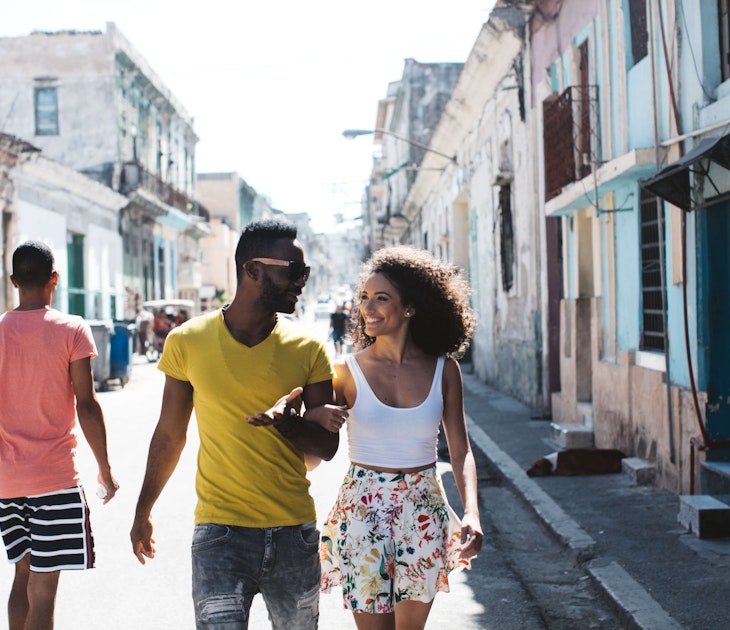
Tips & Advice
Jan 18, 2024 • 4 min read
Travelers often have questions about the visa process for Cuba and whether US citizens can even visit. Here’s our guide to Cuba’s visa requirements.

Jan 9, 2024 • 4 min read
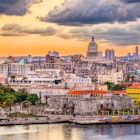
Jan 9, 2024 • 6 min read

Jan 7, 2024 • 10 min read

Jan 6, 2024 • 7 min read

Jan 5, 2024 • 4 min read
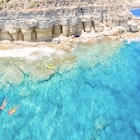
Nov 24, 2023 • 7 min read

May 6, 2023 • 9 min read

Jan 6, 2023 • 7 min read

Jan 5, 2023 • 8 min read

History of US-Cuba Travel Policy
Obama-biden administration.
After decades of relative isolation between US-Cuba travel, 2016 marked a historic change. In his last year in office, President Barack Obama changed US relations with Cuba in three important ways:
- He issued an executive order allowing individuals to travel to Cuba under the “people-to-people” category.
- He signed a new presidential policy toward Cuba, saying the United States would not involve itself in regime change and would respect sovereignty.
- He ended “wet foot, dry foot,” a decades-old policy allowing Cubans who arrived in the United States without a visa to become permanent U.S. residents.
These new policies marked a new era of boom for Cuba’s tourism. In May 2016, the first cruise ship from the United States called on the island, and by August 2016, the first regularly-scheduled flights to Cuba began.

Trump-Pence Administration
However, by mid-June 2017, President Trump signed a new presidential policy which, in essence, repudiated his predecessor’s efforts. It refused to recognize the Cuban regime as legitimate and, thus, put the potential for U.S. involvement in regime change back on the agenda. In addition:
- It included President Trump’s intentions to change the Cuban travel policy—by rolling back individual people-to-people travel and returning to the old categories of educational and people-to-people group travel.
- The president also ordered the Secretary of State to come up with a list of Cuban entities—such as the military and security and intelligence agencies—with which Americans could no longer transact. Because of the integration of public and private sectors in Cuba, this would prohibit Americans from using specific hotels, restaurants, and businesses.
Meanwhile, other obstacles were thrown in the path of people-to-people exchange in Cuba:
- In early September, Hurricane Irma, a Category 5 storm, swept across Cuba , causing flooding and mass destruction. A US State Department Travel Warning, issued immediately after the hurricane, stated that no one should travel to Cuba until after the recovery. A few days later, however, the department issued a second statement, saying Havana had recovered quickly and, with the exception of the island’s North Coast, it would be fine for people to travel.
- On September 29, 2017, the Trump administration announced the withdrawal of 60 percent of staff from the US Embassy in Havana due to unexplained health incidents affecting US diplomats. The administration stated that, while the Cuban government was not being blamed for these incidents, it was at fault for not stopping them.
- The US State Department also issued a Travel Warning on September 29 , advising that no US citizens should travel to Cuba because of these health dangers. Yet no tourists have experienced health problems similar to those of the diplomats, and no other country—including Canada, whose diplomats were also reportedly attacked—has issued a travel warning for its citizens.
These actions, in effect, closed the US consulate in Havana, providing no practical means for Cubans to acquire visas to travel to the United States, regardless of motive. Shortly thereafter, the US expelled 60 percent of Cuban diplomats from Washington, DC.
On November 1, the United States voted against a UN resolution condemning America’s economic embargo against Cuba. The resolution was otherwise approved by a vote of 187-3 in the General Assembly, with Israel and Brazil casting the other “no” votes. Last year, then-President Obama’s administration abstained from voting on the resolution for the first time in 25 years as a means to advance the warming of relations between the US and Cuba.
One week later, on November 8th, the Trump administration announced that beginning November 9, new regulations would ban U.S. citizens from engaging in individual, but not group, people-to-people travel in Cuba and from doing business with dozens of entities linked to the Cuban military and government.
The following year continued to mark ongoing fallout from the health incidents reported by US diplomats in the latter half of 2017. A clear explanation for these incidents continues to remain a mystery.
- On January 10, 2018, the U.S. State Department unveiled a new travel-advisory system , which rates countries from level 1 to 4—1 signifying “Exercise Normal Precautions” and 4 “Do Not Travel.” Cuba has been given a “Level 3: Reconsider Travel” rating, which, along with a 4, is the equivalent of the old Travel Warning. In addition, the State Department’s advisory website pointed to the reason for this rating as the “health attacks” aimed solely at U.S. Embassy employees, and only within small sections of Havana.
- The State Department announced , on March 4, 2018, that it would not re-staff the U.S. Embassy in Havana to the level prior to the 60-percent reduction in late September 2017, but would instead apply a “new permanent staffing plan” in which the embassy continues “to operate with the minimum personnel necessary to perform core diplomatic and consular functions.” The department was complying with a deadline demanding that, six months after a reduction in embassy staff, it must decide whether to re-staff or reassign embassy employees elsewhere. Citing “health attacks affecting U.S. Embassy Havana employees” as the reason for changing the staffing plan, the State Department also decided to leave the travel advisory for Cuba at 3, or “Reconsider Travel.”
- On March 30, 2018, the United States announced it would process Cuban immigrant visas at its embassy in Georgetown, Guyana since the headquarters in Havana continued to be paralyzed. And a few months later, on September 10, President Donald Trump renewed the Trading with the Enemy Law for another year, thus extending the application of economic sanctions to Cuba.
- On August 23, 2018, after a mandatory six-month review of the Cuba travel advisory, the U.S. Department of State downgraded its travel advisory rating for Cuba from “Level 3: Reconsider Travel” to “Level 2: Exercise Increased Caution.”
Despite this, by 2019, Cuba faced a difficult period with significant negative repercussions for its tourism sector. The restrictions imposed that year by the United States led to a 10% reduction in the number of visitors to the island. Some of those restrictions included:
- On March 11, the United States updated the List of Restricted Cuban Entities, including five entities (four of their hotels) accused of being “controlled by the military” services. These entities include: Gaviota Hotels Cuba, Habaguanex Hotels, Playa Gaviota Hotels, Marinas Gaviota Cuba and Fiesta Club Adults Only.
- On May 3, the Trump Administration renewed Title III of the Helms-Burton Act , which since it was signed by Bill Clinton in 1996, had been postponed every six months by successive administrations. With this measure, it allowed US citizens whose properties were nationalized in the 1960s to sue in court anyone, regardless of their nationality, who “traffics” in those properties.
- Only a month later, on June 5, the Treasury Department announced the elimination of the group people-to-people travel category , which effectively eliminated the US cruise tourism to the island. The “individual” people-to-people sub-category of travel had been eliminated since November 2017.
- On October 25, the US government announced that it was suspending commercial airline flights to the interior of the island, allowing landing only in Havana. On December 10, this measure came into force.
In March 2020, COVID-19 had struck the island, and like many countries around the globe, the Cuban tourism industry went into lockdown. In addition to the devastation due to COVID-19, this year also marked the final political blows from the Trump administration for US-Cuba travel. This included:
- On January 10, the United States government announced the suspension of all charter flights to Cuba , except for trips to the José Martí International Airport, in Havana.
- On August 6, Cuba was included in Level 4 of the State Department’s Travel Alert System, and shortly after, it announced the suspension of all private charter flights between the USA and Cuba except those authorized to Havana.
- In September 2020, the Trump administration extended the Trading with the Enemy Law and the blockade policy against Cuba for one more year. The administration also announced the creation of a List of Prohibited Accommodations in Cuba to which properties under government management were added, and new entities were included in the List of Restricted Cuban Entities, thus reaching 230 entities.
- This same month, the administration prohibited American travelers from bringing home bottles of Cuban rum and cigars for personal consumption . They also barred travel for reasons of attending or organizing professional meetings or conferences, public performances, and sports competitions.
- In January 2021, as a final blow from the Trump administration, Cuba was designated as a “state sponsor of terrorism.”

Biden-Harris Administration
The incoming Biden Administration in January 2021 brought new optimism for US-Cuba normalization efforts. In April of the previous year, Joe Biden had announced during his campaign run that, if elected, he would “promptly reverse the failed Trump policies that have inflicted harm on the Cuban people and done nothing to advance democracy and human rights,” lauding Americans “and especially Cuban-Americans” as the “best ambassadors for freedom.” Yet despite the entry of the new administration, the promised policy shifts towards Cuba normalizations have yet to be seen.
- In March 2021, Jen Psaki, White House Press Secretary announced in a brief that “A Cuba policy shift is not currently among President Biden’s top priorities.’’
- Then on May 14, 2021, the Biden administration renewed the December 2020 determination that Cuba is “not cooperating fully with United States antiterrorism efforts.”
- On June 2, 2021, five senators submitted a letter to Secretary of State, Anthony Blinken, requesting that the Biden administration restore cooperative efforts in relation to the environment and climate change. The letter asks to re-establish “dialogue with the Cuban government on marine conservation, climate change, and other urgent environmental issues” and revoke the Trump-era policies “which have severely restricted scientific and professional exchange between the United States and Cuba”.
(Timeline information through 2018 provided primarily by Bob Guild , vice president of Marazul Charters, Inc., and co-coordinator of RESPECT, a U.S. professional association of tour operators, travel agents, non-profits, and other travel providers with 160 members dedicated to promoting responsible and ethical travel to Cuba. Additional information provided by CREST.)
- Travel Advice
- General Information
Traveling to Cuba as a US Citizen: 2024 Complete Guide

Last Updated: December 15, 2022 January 3, 2024
Cuba has been a country shrouded in mystery and wonder for many Americans. Just 90 miles off the shores of Key West, it’s no surprise why many Americans wonder if they can visit Cuba. With continuous changes to travel restrictions and policies regarding Cuba, Squaremouth has compiled a detailed overview of everything you need to know, updated with the latest information regarding Cuba entry requirements , travel advice, and much more.
Can Americans Travel to Cuba?
In short, yes, it is possible for Americans to visit Cuba. However, the country still remains off limits for tourist activities. This means U.S citizens currently cannot visit Cuba when the sole purpose of their trip is to sightsee, go to the beach, and explore.
In 2024, Americans that wish to travel to Cuba must fall into one of the 12 approved categories of travel, determined by the Department of Treasury’s Office of Foreign Assets Control (OFAC) . Visiting Cuba is not as straightforward for Americans as it is for citizens of other nations, like Canada or the United Kingdom. U.S citizens can apply for a general license under one of the authorized categories, which can take anywhere from four to six months to process, according to regulation experts . The 12 categories of authorized travel to Cuba include:
- Family Visits
- Journalistic Activity
- Professional Research and Meetings
- Educational activities
- Religious Activities
- Public Performances, Clinics, Workshops, Exhibitions, Athletic and Other Competitions
- Support for the Cuban People
- Humanitarian Projects
- Activities of Private Foundations, or Research or Educational Institutes
- Official Business of the U.S. Government, Foreign Governments, and Certain Intergovernmental Organizations
- Exportation, Importation, or Transmission of Information
- Authorized Export Transactions
To apply for a license, or to learn more about the different categories of approved travel, visit the official OFAC website .
Cuba Travel Restrictions & Requirements
The U.S Passport is welcome and accepted at the Cuban borders. Most of the policies in place that prohibit tourist travel to Cuba come from the United States. Below are some of the main travel restrictions and requirements to keep in mind when traveling to Cuba.
Cuba Entry Requirements
To gain entry to Cuba, Americans are required to possess specific documents upon arrival. It’s important to start gathering these documents as early as possible to avoid issues at the border. Below is a simplified list of entry requirements, compiled by Cuba Unbound .
- Return Travel Documents: Travelers must show proof of entry and departure dates in order to receive a valid visa.
- Valid Cuban Tourist Card/Visa: U.S citizens traveling to Cuba must acquire a valid Visa, also known as a Cuban Tourist Card. These cards can be purchased online for $50-$100, are valid for 30 days, and take roughly 48 hours to process.
- Certification of Travel Form: This document outlines the approved category in which U.S citizens are traveling to Cuba.
- Valid Passport : Americans are required to have a passport that is valid for the duration of their stay.
- Proof of Travel Medical Insurance : Cuba requires all foreigners to purchase medical insurance prior to entry.
Cuba Travel Insurance Requirements
Since 2010, the Cuban government has required all visitors from abroad to provide proof of medical insurance when visiting the island. While there are no requirements on the amount of coverage travelers need, U.S citizens visiting Cuba must purchase a policy that includes Emergency Medical coverage, as well as Medical Evacuation & Repatriation coverage. Squaremouth recommends travelers visiting Cuba consider a travel insurance policy with at least $50,000 in Emergency Medical coverage, and at least $100,000 in Medical Evacuation & Repatriation coverage. Squaremouth’s Cuba Travel Insurance page provides more information and specific policy recommendations for travelers planning to visit the country.
Typically, single trip travel insurance premiums will equate to 5-10% of a traveler’s total insured trip costs. According to Squaremouth data, the average Cuba travel insurance policy cost travelers roughly $200.
Visiting Cuba From the U.S.
For more than 60 years, U.S travel to Cuba has been a complex issue. With that said, there are plenty of reasons why Cuba, home to more than 400 white-sand beaches and over 3,500 miles of coastline, has remained a desirable destination for American travelers. In relation to neighboring Caribbean countries, many of which are consistently among the most popular destinations for Americans, Cuba has a relatively low crime rate. With that said, the U.S Department of State’s Cuba Travel Advisory recommends exercising increased caution when visiting the island due to petty crime, such as theft, sometimes targeted towards tourists.
What Airports Fly to Cuba From the U.S?
Regardless of the complexities of traveling to Cuba as a U.S citizen, there are still multiple airports and airlines that provide non-stop flights to Havana, the nation’s capital. According to Simple Flying , eligible U.S citizens traveling to Cuba can find non-stop service from the following airports:
- John F. Kennedy International Airport (JFK), New York
- Newark Liberty International Airport (EWR), New Jersey
- Houston George Bush Intercontinental Airport (IAH), Texas
- Tampa International Airport (TPA), Florida
- Fort Lauderdale-Hollywood International Airport (FLL), Florida
- Miami International Airport (MIA), Florida
For those interested in which airlines fly directly to Cuba, SkyScanner shares that American Airlines, Southwest Airlines, jetBlue, and United all provide such services to eligible U.S citizens.
Simple Flying
How to fly to cuba from the usa: 5 top tips.
Flying to Cuba via the United States involves specific considerations. Here's what you need to know.
- US citizens can travel to Cuba under 12 approved categories, excluding tourism.
- Keep up with political changes affecting US-Cuba relations for smooth travel planning.
- Respect Cuban customs, be aware of restrictions, and have necessary documentation.
Americans cannot visit Cuba for tourism due to the trade embargo under the Cuban Assets Control Regulations of 1963 . However, since late 2016, when the first commercial flight to Cuba from the US in over 50 years took off, legal travel to Cuba is possible by complying with Cuban and US government regulations.
Among the US carriers currently flying to Cuba are American Airlines, Delta Air Lines, and United Airlines. The country's flag carrier, Cubana de Aviación , does not fly to the US, but instead connects Havana's José Martí International Airport (HAV) with Madrid (MAD), Barcelona (BCN), Buenos Aires (EZE), and Caracas (CCS). Though it has become easier recently, traveling to Cuba from the US still requires careful planning. Here are five tips you should consider before starting your journey.
1 Understand US-Cuba Travel Restrictions
Us citizens need to qualify for a "general license" under one of 12 approved categories.
Travel to Cuba for tourist purposes is prohibited by US law , but exceptions exist through general licenses issued by the Office of Foreign Assets Control (OFAC). These licenses cover 12 travel categories, including family visits, journalism, education, and humanitarian projects. Specific details on Cuba's sanctions regulations and the application for an OFAC license can be found on the Department of Treasury's website .
The most popular category currently is "support for the Cuban people," which requires travelers to engage in activities contributing to Cuba's local economy. This includes staying in locally run guesthouses, visiting Cuban-owned businesses, and participating in cultural activities.
In 2022, the US State Department announced measures to ease Cuba's travel restrictions for US citizens. It also planned to reinstate the Cuban Family Reunification Parole Program and expand consular services for Cubans seeking to join their families in the US.
However, the State Department lists restricted entities associated with the Cuban military, intelligence, or security services. The US Embassy does not process visa applications for Cuba, and U.S.-Cuban dual citizens should be aware of certain restrictions and obligations imposed by the Cuban government, including the requirement to use a Cuban passport when entering or departing Cuba.
Despite US Sanctions Cuba Has Never Been So Well Connected
2 consider people-to-people (p2p) exchanges, biden reinstated the general license category for p2p group travel to cuba in 2022.
In May 2022, the Biden Administration reinstated the general license category for People to People (P2P) group travel, which had been eliminated by the Trump Administration in 2019. However, individuals under US jurisdiction are prohibited from traveling to Cuba for "people-to-people" educational exchanges. Just group people-to-people travel for educational purposes is generally allowed, with certain conditions.
People-to-people travel requires a full-time schedule of activities that involve meaningful interaction with the Cuban people. Cuba Educational Travel is the premier People to People tour operator, organizing and conducting thousands of meaningful cultural exchanges for US travelers to Cuba over the last decade.
As of June 9, 2022, the Office of Foreign Assets Control (OFAC) has amended regulations to permit group people-to-people educational travel organized by US organizations promoting such exchanges, provided a representative of the sponsoring organization accompanies travelers. Authorized travel must involve activities intended to foster contact with Cuban people, support civil society, or promote independence from Cuban authorities and must result in meaningful interactions.
Cuba Travel Restrictions To Be Eased By The United States
3 obtain the necessary documentation, the cuban tourist card or visa can typically be obtained through your airline or a travel agency specializing in cuban travel.
Traveling to Cuba requires specific documentation, including a valid passport, a Cuban tourist card or visa, and health insurance coverage valid in Cuba. It's essential to arrange these documents well before your trip to ensure a smooth journey.
The Cuban tourist card or visa can typically be obtained through your airline or a travel agency specializing in Cuban travel. Health insurance coverage is often included in the cost of your airline ticket or can be purchased separately.
In January 2023, Cuba also implemented a new requirement for passengers traveling to the country to complete an online pre-arrival form called D'VIAJEROS , replacing the previous paper form. The form collects passport information, travel plans, customs declarations, and COVID-19 information. Once submitted, passengers receive a QR code for easy identification upon arrival. This system aims to streamline entry procedures and is mandatory for all passengers.
Similar electronic travel authorization systems exist in countries like the US ESTA (Electronic System for Travel Authorization) and the EU's upcoming ETIAS (European Travel Information and Authorization System). The move aligns with global trends toward digitizing travel processes and enhancing border security.
World's Last Commercial Operator Of Ilyushin Il-96
4 stay updated on political developments, there hasn't been a clear trend in recent years, with different decisions contrasting with each other.
Given the evolving nature of US-Cuba relations, staying informed about any political developments or changes that may impact travel between the two countries is crucial.
In 2021, The US State Department, led by former Secretary of State Mike Pompeo under the Trump administration, placed Cuba back on the list of state sponsors of terrorism. This decision reversed a move made during the Obama era toward normalization. Pompeo cited reasons such as Cuba's sheltering of US fugitives and Colombian rebels, as well as its support for Venezuela's regime.
Why The New US Travel Rules Are Bad News For Travellers From Cuba
A year later, under President Biden's administration, the White House eased some restrictions on Cuba, such as expanding US flights, reinstating a family reunification program, increasing visa processing, and removing the remittance cap for families.
However, in 2023, the US deported over one hundred Cuban nationals back to Cuba in the first deportation flight since the pandemic began. This decision followed a surge in Cuban arrivals at the southern US border, reaching nearly 221,000 in fiscal year 2022, since Cuba faces a severe economic crisis, with skyrocketing inflation, increasing food prices, and other expenses. Also, if Trump is reelected, there may be a return to more restricted travel policies.
5 Respect Local Customs and Regulations
Personal effects are allowed, but gifts exceeding $53.61 incur customs tax.
Cuba has unique customs and regulations that travelers should know before visiting. From respecting local traditions and customs to adhering to photography and internet access regulations, being respectful and mindful of your surroundings is very important. Additionally, travelers should be aware of restrictions on bringing certain items into Cuba, including electronics and medications, to avoid any issues at customs.
The Cuban customs system aims to protect citizens, industry, and the environment while combating illicit activities like smuggling and drug trafficking. Controls exist at entry and exit points, such as airports and ports. Visitors must have health insurance, a valid passport, a visa, a return ticket, and a lodging address upon entry. Personal effects are allowed, along with gifts up to 1287 CUP (Cuban Pesos) ($53.61); items exceeding this value incur customs tax.
A Brief History Of Cubana de Aviación
Prohibited items include drugs, weapons, pornography, and anything endangering citizens' safety. A customs declaration is required for permanent imports carrying over $5000. Upon departure, travelers can export cigars, cash, liquor, and cigarettes within specified limits. Artworks require documentation; with it, travelers can leave with them. An official seal is necessary for purchasing art items from the National Registry of Cultural Assets in Havana.
Have you ever been to Cuba? Which airline did you fly with? Let us know in the comments below.
You are using an outdated browser. Upgrade your browser today or install Google Chrome Frame to better experience this site.
Cuba Traveler View
Travel health notices, vaccines and medicines, non-vaccine-preventable diseases, stay healthy and safe.
- Packing List
After Your Trip
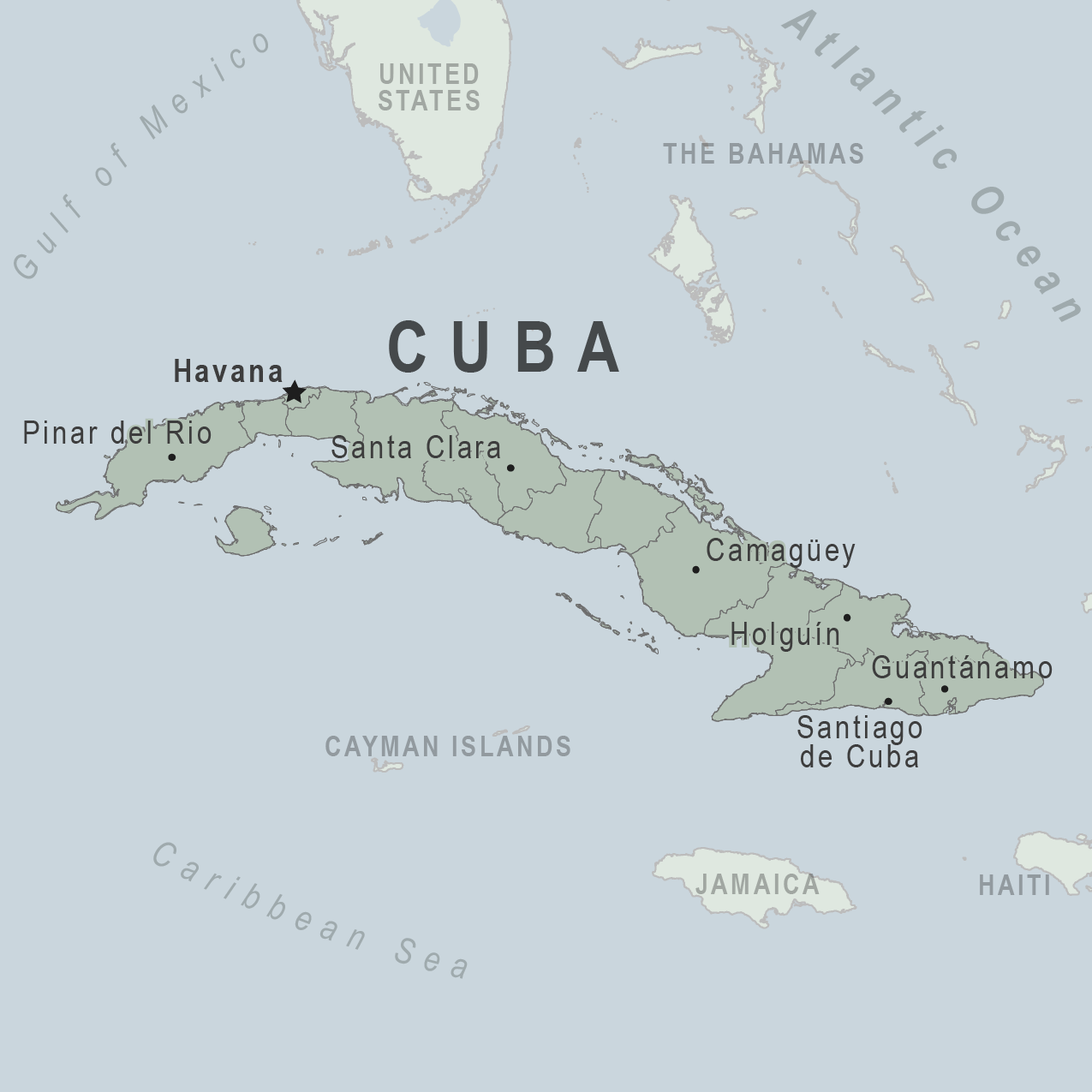
There are no notices currently in effect for Cuba.
⇧ Top
Check the vaccines and medicines list and visit your doctor at least a month before your trip to get vaccines or medicines you may need. If you or your doctor need help finding a location that provides certain vaccines or medicines, visit the Find a Clinic page.
Routine vaccines
Recommendations.
Make sure you are up-to-date on all routine vaccines before every trip. Some of these vaccines include
- Chickenpox (Varicella)
- Diphtheria-Tetanus-Pertussis
- Flu (influenza)
- Measles-Mumps-Rubella (MMR)
Immunization schedules
All eligible travelers should be up to date with their COVID-19 vaccines. Please see Your COVID-19 Vaccination for more information.
COVID-19 vaccine
Hepatitis A
Recommended for unvaccinated travelers one year old or older going to Cuba.
Infants 6 to 11 months old should also be vaccinated against Hepatitis A. The dose does not count toward the routine 2-dose series.
Travelers allergic to a vaccine component or who are younger than 6 months should receive a single dose of immune globulin, which provides effective protection for up to 2 months depending on dosage given.
Unvaccinated travelers who are over 40 years old, immunocompromised, or have chronic medical conditions planning to depart to a risk area in less than 2 weeks should get the initial dose of vaccine and at the same appointment receive immune globulin.
Hepatitis A - CDC Yellow Book
Dosing info - Hep A
Hepatitis B
Recommended for unvaccinated travelers younger than 60 years old traveling to Cuba. Unvaccinated travelers 60 years and older may get vaccinated before traveling to Cuba.
Hepatitis B - CDC Yellow Book
Dosing info - Hep B
Cases of measles are on the rise worldwide. Travelers are at risk of measles if they have not been fully vaccinated at least two weeks prior to departure, or have not had measles in the past, and travel internationally to areas where measles is spreading.
All international travelers should be fully vaccinated against measles with the measles-mumps-rubella (MMR) vaccine, including an early dose for infants 6–11 months, according to CDC’s measles vaccination recommendations for international travel .
Measles (Rubeola) - CDC Yellow Book
Rabid dogs are commonly found in Cuba. However, if you are bitten or scratched by a dog or other mammal while in Cuba, rabies treatment is often available.
Consider rabies vaccination before your trip if your activities mean you will be around dogs or wildlife.
Travelers more likely to encounter rabid animals include
- Campers, adventure travelers, or cave explorers (spelunkers)
- Veterinarians, animal handlers, field biologists, or laboratory workers handling animal specimens
- Visitors to rural areas
Since children are more likely to be bitten or scratched by a dog or other animals, consider rabies vaccination for children traveling to Cuba.
Rabies - CDC Yellow Book
Recommended for most travelers, especially those staying with friends or relatives or visiting smaller cities or rural areas.
Typhoid - CDC Yellow Book
Dosing info - Typhoid
Avoid contaminated water
Leptospirosis
How most people get sick (most common modes of transmission)
- Touching urine or other body fluids from an animal infected with leptospirosis
- Swimming or wading in urine-contaminated fresh water, or contact with urine-contaminated mud
- Drinking water or eating food contaminated with animal urine
- Avoid contaminated water and soil
Clinical Guidance
Avoid bug bites.
- Mosquito bite
- Avoid Bug Bites
- An infected pregnant woman can spread it to her unborn baby
Airborne & droplet
- Breathing in air or accidentally eating food contaminated with the urine, droppings, or saliva of infected rodents
- Bite from an infected rodent
- Less commonly, being around someone sick with hantavirus (only occurs with Andes virus)
- Avoid rodents and areas where they live
- Avoid sick people
Tuberculosis (TB)
- Breathe in TB bacteria that is in the air from an infected and contagious person coughing, speaking, or singing.
Learn actions you can take to stay healthy and safe on your trip. Vaccines cannot protect you from many diseases in Cuba, so your behaviors are important.
Eat and drink safely
Food and water standards around the world vary based on the destination. Standards may also differ within a country and risk may change depending on activity type (e.g., hiking versus business trip). You can learn more about safe food and drink choices when traveling by accessing the resources below.
- Choose Safe Food and Drinks When Traveling
- Water Treatment Options When Hiking, Camping or Traveling
- Global Water, Sanitation and Hygiene | Healthy Water
- Avoid Contaminated Water During Travel
You can also visit the Department of State Country Information Pages for additional information about food and water safety.
Prevent bug bites
Bugs (like mosquitoes, ticks, and fleas) can spread a number of diseases in Cuba. Many of these diseases cannot be prevented with a vaccine or medicine. You can reduce your risk by taking steps to prevent bug bites.
What can I do to prevent bug bites?
- Cover exposed skin by wearing long-sleeved shirts, long pants, and hats.
- Use an appropriate insect repellent (see below).
- Use permethrin-treated clothing and gear (such as boots, pants, socks, and tents). Do not use permethrin directly on skin.
- Stay and sleep in air-conditioned or screened rooms.
- Use a bed net if the area where you are sleeping is exposed to the outdoors.
What type of insect repellent should I use?
- FOR PROTECTION AGAINST TICKS AND MOSQUITOES: Use a repellent that contains 20% or more DEET for protection that lasts up to several hours.
- Picaridin (also known as KBR 3023, Bayrepel, and icaridin)
- Oil of lemon eucalyptus (OLE) or para-menthane-diol (PMD)
- 2-undecanone
- Always use insect repellent as directed.
What should I do if I am bitten by bugs?
- Avoid scratching bug bites, and apply hydrocortisone cream or calamine lotion to reduce the itching.
- Check your entire body for ticks after outdoor activity. Be sure to remove ticks properly.
What can I do to avoid bed bugs?
Although bed bugs do not carry disease, they are an annoyance. See our information page about avoiding bug bites for some easy tips to avoid them. For more information on bed bugs, see Bed Bugs .
For more detailed information on avoiding bug bites, see Avoid Bug Bites .
Stay safe outdoors
If your travel plans in Cuba include outdoor activities, take these steps to stay safe and healthy during your trip.
- Stay alert to changing weather conditions and adjust your plans if conditions become unsafe.
- Prepare for activities by wearing the right clothes and packing protective items, such as bug spray, sunscreen, and a basic first aid kit.
- Consider learning basic first aid and CPR before travel. Bring a travel health kit with items appropriate for your activities.
- If you are outside for many hours in heat, eat salty snacks and drink water to stay hydrated and replace salt lost through sweating.
- Protect yourself from UV radiation : use sunscreen with an SPF of at least 15, wear protective clothing, and seek shade during the hottest time of day (10 a.m.–4 p.m.).
- Be especially careful during summer months and at high elevation. Because sunlight reflects off snow, sand, and water, sun exposure may be increased during activities like skiing, swimming, and sailing.
- Very cold temperatures can be dangerous. Dress in layers and cover heads, hands, and feet properly if you are visiting a cold location.
Stay safe around water
- Swim only in designated swimming areas. Obey lifeguards and warning flags on beaches.
- Practice safe boating—follow all boating safety laws, do not drink alcohol if driving a boat, and always wear a life jacket.
- Do not dive into shallow water.
- Do not swim in freshwater in developing areas or where sanitation is poor.
- Avoid swallowing water when swimming. Untreated water can carry germs that make you sick.
- To prevent infections, wear shoes on beaches where there may be animal waste.
Keep away from animals
Most animals avoid people, but they may attack if they feel threatened, are protecting their young or territory, or if they are injured or ill. Animal bites and scratches can lead to serious diseases such as rabies.
Follow these tips to protect yourself:
- Do not touch or feed any animals you do not know.
- Do not allow animals to lick open wounds, and do not get animal saliva in your eyes or mouth.
- Avoid rodents and their urine and feces.
- Traveling pets should be supervised closely and not allowed to come in contact with local animals.
- If you wake in a room with a bat, seek medical care immediately. Bat bites may be hard to see.
All animals can pose a threat, but be extra careful around dogs, bats, monkeys, sea animals such as jellyfish, and snakes. If you are bitten or scratched by an animal, immediately:
- Wash the wound with soap and clean water.
- Go to a doctor right away.
- Tell your doctor about your injury when you get back to the United States.
Consider buying medical evacuation insurance. Rabies is a deadly disease that must be treated quickly, and treatment may not be available in some countries.
Reduce your exposure to germs
Follow these tips to avoid getting sick or spreading illness to others while traveling:
- Wash your hands often, especially before eating.
- If soap and water aren’t available, clean hands with hand sanitizer (containing at least 60% alcohol).
- Don’t touch your eyes, nose, or mouth. If you need to touch your face, make sure your hands are clean.
- Cover your mouth and nose with a tissue or your sleeve (not your hands) when coughing or sneezing.
- Try to avoid contact with people who are sick.
- If you are sick, stay home or in your hotel room, unless you need medical care.
Avoid sharing body fluids
Diseases can be spread through body fluids, such as saliva, blood, vomit, and semen.
Protect yourself:
- Use latex condoms correctly.
- Do not inject drugs.
- Limit alcohol consumption. People take more risks when intoxicated.
- Do not share needles or any devices that can break the skin. That includes needles for tattoos, piercings, and acupuncture.
- If you receive medical or dental care, make sure the equipment is disinfected or sanitized.
Know how to get medical care while traveling
Plan for how you will get health care during your trip, should the need arise:
- Carry a list of local doctors and hospitals at your destination.
- Review your health insurance plan to determine what medical services it would cover during your trip. Consider purchasing travel health and medical evacuation insurance.
- Carry a card that identifies, in the local language, your blood type, chronic conditions or serious allergies, and the generic names of any medications you take.
- Some prescription drugs may be illegal in other countries. Call Cuba’s embassy to verify that all of your prescription(s) are legal to bring with you.
- Bring all the medicines (including over-the-counter medicines) you think you might need during your trip, including extra in case of travel delays. Ask your doctor to help you get prescriptions filled early if you need to.
Many foreign hospitals and clinics are accredited by the Joint Commission International. A list of accredited facilities is available at their website ( www.jointcommissioninternational.org ).
In some countries, medicine (prescription and over-the-counter) may be substandard or counterfeit. Bring the medicines you will need from the United States to avoid having to buy them at your destination.
Select safe transportation
Motor vehicle crashes are the #1 killer of healthy US citizens in foreign countries.
In many places cars, buses, large trucks, rickshaws, bikes, people on foot, and even animals share the same lanes of traffic, increasing the risk for crashes.
Be smart when you are traveling on foot.
- Use sidewalks and marked crosswalks.
- Pay attention to the traffic around you, especially in crowded areas.
- Remember, people on foot do not always have the right of way in other countries.
Riding/Driving
Choose a safe vehicle.
- Choose official taxis or public transportation, such as trains and buses.
- Ride only in cars that have seatbelts.
- Avoid overcrowded, overloaded, top-heavy buses and minivans.
- Avoid riding on motorcycles or motorbikes, especially motorbike taxis. (Many crashes are caused by inexperienced motorbike drivers.)
- Choose newer vehicles—they may have more safety features, such as airbags, and be more reliable.
- Choose larger vehicles, which may provide more protection in crashes.
Think about the driver.
- Do not drive after drinking alcohol or ride with someone who has been drinking.
- Consider hiring a licensed, trained driver familiar with the area.
- Arrange payment before departing.
Follow basic safety tips.
- Wear a seatbelt at all times.
- Sit in the back seat of cars and taxis.
- When on motorbikes or bicycles, always wear a helmet. (Bring a helmet from home, if needed.)
- Avoid driving at night; street lighting in certain parts of Cuba may be poor.
- Do not use a cell phone or text while driving (illegal in many countries).
- Travel during daylight hours only, especially in rural areas.
- If you choose to drive a vehicle in Cuba, learn the local traffic laws and have the proper paperwork.
- Get any driving permits and insurance you may need. Get an International Driving Permit (IDP). Carry the IDP and a US-issued driver's license at all times.
- Check with your auto insurance policy's international coverage, and get more coverage if needed. Make sure you have liability insurance.
- Avoid using local, unscheduled aircraft.
- If possible, fly on larger planes (more than 30 seats); larger airplanes are more likely to have regular safety inspections.
- Try to schedule flights during daylight hours and in good weather.
Medical Evacuation Insurance
If you are seriously injured, emergency care may not be available or may not meet US standards. Trauma care centers are uncommon outside urban areas. Having medical evacuation insurance can be helpful for these reasons.
Helpful Resources
Road Safety Overseas (Information from the US Department of State): Includes tips on driving in other countries, International Driving Permits, auto insurance, and other resources.
The Association for International Road Travel has country-specific Road Travel Reports available for most countries for a minimal fee.
Maintain personal security
Use the same common sense traveling overseas that you would at home, and always stay alert and aware of your surroundings.
Before you leave
- Research your destination(s), including local laws, customs, and culture.
- Monitor travel advisories and alerts and read travel tips from the US Department of State.
- Enroll in the Smart Traveler Enrollment Program (STEP) .
- Leave a copy of your itinerary, contact information, credit cards, and passport with someone at home.
- Pack as light as possible, and leave at home any item you could not replace.
While at your destination(s)
- Carry contact information for the nearest US embassy or consulate .
- Carry a photocopy of your passport and entry stamp; leave the actual passport securely in your hotel.
- Follow all local laws and social customs.
- Do not wear expensive clothing or jewelry.
- Always keep hotel doors locked, and store valuables in secure areas.
- If possible, choose hotel rooms between the 2nd and 6th floors.
Healthy Travel Packing List
Use the Healthy Travel Packing List for Cuba for a list of health-related items to consider packing for your trip. Talk to your doctor about which items are most important for you.
Why does CDC recommend packing these health-related items?
It’s best to be prepared to prevent and treat common illnesses and injuries. Some supplies and medicines may be difficult to find at your destination, may have different names, or may have different ingredients than what you normally use.
If you are not feeling well after your trip, you may need to see a doctor. If you need help finding a travel medicine specialist, see Find a Clinic . Be sure to tell your doctor about your travel, including where you went and what you did on your trip. Also tell your doctor if you were bitten or scratched by an animal while traveling.
For more information on what to do if you are sick after your trip, see Getting Sick after Travel .
Map Disclaimer - The boundaries and names shown and the designations used on maps do not imply the expression of any opinion whatsoever on the part of the Centers for Disease Control and Prevention concerning the legal status of any country, territory, city or area or of its authorities, or concerning the delimitation of its frontiers or boundaries. Approximate border lines for which there may not yet be full agreement are generally marked.
Other Destinations
If you need help finding travel information:
Message & data rates may apply. CDC Privacy Policy
File Formats Help:
- Adobe PDF file
- Microsoft PowerPoint file
- Microsoft Word file
- Microsoft Excel file
- Audio/Video file
- Apple Quicktime file
- RealPlayer file
- Zip Archive file
Exit Notification / Disclaimer Policy
- The Centers for Disease Control and Prevention (CDC) cannot attest to the accuracy of a non-federal website.
- Linking to a non-federal website does not constitute an endorsement by CDC or any of its employees of the sponsors or the information and products presented on the website.
- You will be subject to the destination website's privacy policy when you follow the link.
- CDC is not responsible for Section 508 compliance (accessibility) on other federal or private website.
Biden to resume remittances, travel to Cuba, but other Obama-era overtures will take a while
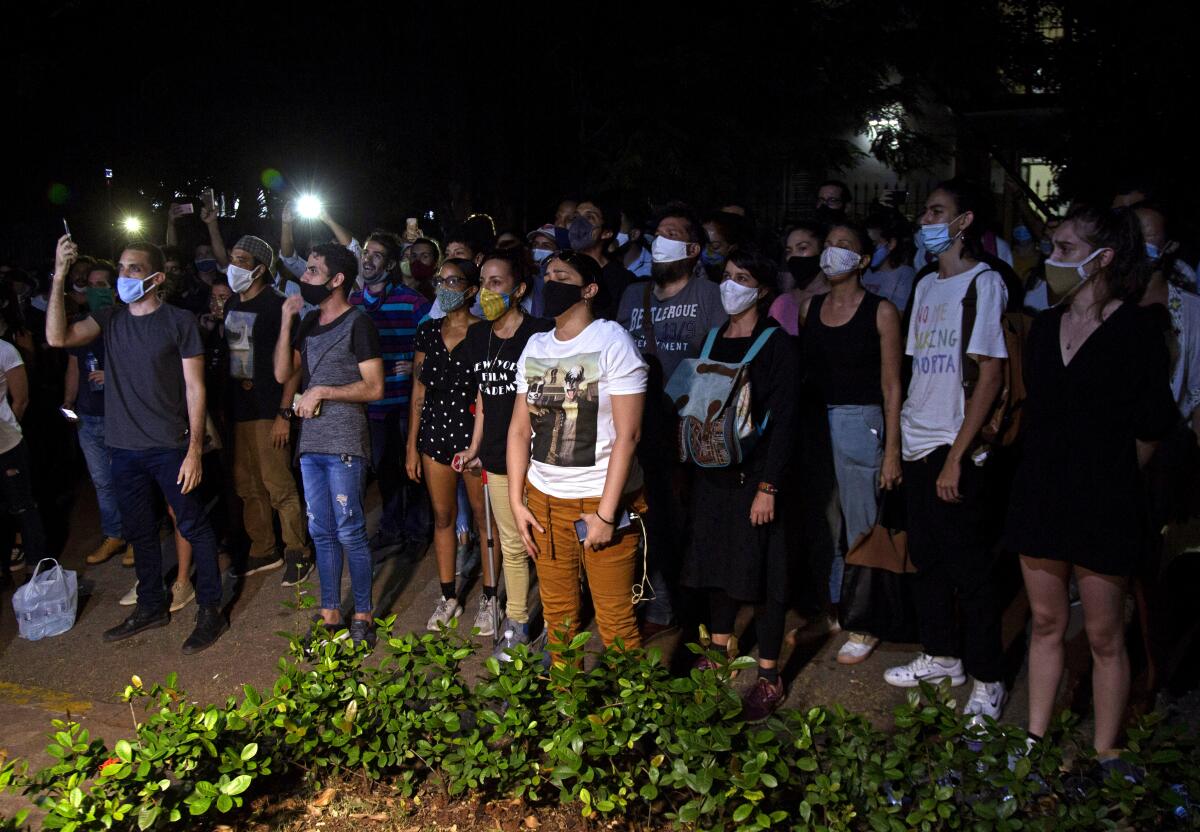
- Show more sharing options
- Copy Link URL Copied!
President Obama took historic steps to thaw the hostile, Cold War-era relationship with the island nation of Cuba, 120 miles south of Miami. President Trump did his best to put everything back on ice.
Now the Biden administration says it will lift some of Trump’s restrictions on business and travel between the U.S. and Cuba, and renew diplomatic talks.
But President Biden’s initial actions will disappoint advocates longing for the more robust relationship that was emerging in the Obama years.
Although he promised during the campaign to aggressively reverse Trump’s Cuba policy, Biden’s plans will have to roll out more slowly than some of his advisors had hoped.
He faces stiff resistance in Congress from members opposed to détente with Cuba, including from one of the Senate’s most powerful Democrats. At the same time, Cuba’s behavior has become more controversial with repression of dissidents and support for Venezuela. And Trump left numerous obstacles, such as formally declaring Cuba a state sponsor of terrorism, which takes time and a bundle of red tape to reverse.
“There was never going to be Obama Redux,” said Cuba expert John Kavulich, head of an economic institute that for decades has focused on Cuba.
The Biden government will remove harsh Trump restrictions that most directly harmed civilian Cubans, administration officials said. First of those are the limits on the amount of remittances that Cuban Americans can send to their relatives on the island. The administration will also restore some of the wiring services, including Western Union, that are used to transmit the money and that the previous government blocked. The money is a lifeline for many Cubans.
Biden’s team also intends to allow more travel between the countries , people familiar with the plans said. U.S.-origin flights to various Cuban cities were opened under Obama, along with a large cruise ship itinerary. But those mostly shut down under Trump. Obama’s reasoning was that the exposure of Cubans to more Westerners would plant the seeds of democratization; Trump’s people argued that a lot of the dollars spent by tourists and other visitors ended up in the hands of the Cuban military.
Biden’s first steps will be taken as initial gestures, while more difficult matters are debated.
“Politically he is going to keep it limited for now,” said John Caulfield, former head of the U.S. mission in Havana and specialist in U.S.-Cuba policy. Caulfield said Biden needs to see how much political will there is in Havana.
World & Nation
A year after Trump reversed Obama’s opening to Cuba, the U.S. is sitting out Havana’s political revamp
A year ago, President Trump announced tougher policies concerning Cuba, reinstating travel and trade restrictions eased by the historic Obama-era opening between Washington and Havana.
June 22, 2018
Cuban President Miguel Diaz-Canel has said he welcomes dialogue with Washington, but without preconditions.
Biden may also rebuild the staff at the U.S. diplomatic mission in Havana, which sank to a skeleton crew under Trump, and resume issuing visas to Cuban nationals.
Since Biden assumed office, his aides have become more circumspect about the plans for Cuba, repeating publicly that the policy is “under review.”
However, Juan Gonzalez, an Obama administration alum who is now head of Western Hemisphere affairs for Biden’s National Security Council, last week confirmed broad strokes of the new policy.
Biden’s “commitment on Cuba is to lift the limitations on remittances and make possible the travel of Americans to the island,” he said in Spanish to Spanish-language news channel Univision.
The previous administration “only penalized Cuban Americans and the Cuban people in the middle of a pandemic” by making it difficult for them to receive money from relatives and “did nothing to try to advance a democratic future in Cuba,” Gonzalez said.
Two other people who have participated in talks about Cuba with members of the administration confirmed the steps. The State Department declined comment.
Obama’s opening with Cuba, announced in 2014, came in his second term, when he no longer had to worry about reelection and after the critical and traditionally Republican Florida vote in the 2012 contest had moved into his camp.
He reestablished the U.S. Embassy in Havana, made the first trip there of an American president in 90 years, and oversaw the revival of numerous bilateral operations, like the interdiction of drug traffickers.
Biden, by contrast, must confront the issue early in his first term, when not only are Florida Republicans including Sen. Marco Rubio arrayed against him, but Democratic Sen. Robert Menendez of New Jersey, a hawk on Cuba, is ascending to the powerful chairmanship of the Senate Foreign Relations Committee.
Nine days before leaving office, Trump’s Secretary of State Michael R. Pompeo embedded extra obstacles that would trip up the Biden administration in its efforts to return to rapprochement with Cuba. Pompeo and Trump put Cuba on the list of state “sponsors of terrorism” with only three other countries: Iran, North Korea and Syria.
Most experts say the designation is purely political. Normally this designation comes after an extensive review by the State Department and then consultation with Congress. That did not happen.
Politically it puts Biden in the tricky position of having to affirmatively recertify that Cuba is not sponsoring terrorism, and Havana’s support for Colombia’s leftist guerrillas and Venezuela dictator Nicolas Maduro will complicate that. Cuba and Venezuela exchange intelligence officers, doctors, oil and possibly weapons.
While there is wide confidence among lawmakers and academics that Biden will fulfill some of his Cuba campaign promises, there is also concern the administration will stumble if it begins to demand Cuba take reciprocal steps, such as freeing dissidents from jail, to “earn” U.S. concessions. It’s a tactic that has never worked.
“There will be a temptation to demand reciprocity and concessions from the Cubans in return,” said Peter Kornbluh, coauthor of “Back Channel to Cuba,” a book recounting Obama’s secret negotiations. “The history of negotiations with Cuba demonstrates that the quid pro quo approach is a non-starter, and a recipe for policy failure.”
Sen. Patrick J. Leahy (D-Vt.) has lobbied both Biden and Secretary of State Antony J. Blinken on reestablishing full ties with Cuba, making similar warnings.
Richard Feinberg, a veteran of the Clinton White House and now an international political economy professor at UC San Diego, also cautioned against “overdemanding,” saying the Biden team is “overestimating U.S. leverage worldwide.”
“The administration is looking for positive developments on the island to wrap their announcements around,” Feinberg said. Earlier this month, Diaz-Canel, struggling with a moribund economy, vastly expanded the list of small businesses that Cubans may operate, the most important step Havana has taken in allowing a form of private enterprise.
The most ardent Cuba advocates in Congress and elsewhere are reviving a campaign to end the 59-year-old U.S. embargo on Cuba, initiated by President Kennedy to isolate the island’s communist leadership. Obama, along with experts, historians and activists, long declared the embargo a failure — it never unseated revolutionary leader Fidel Castro or his successors — and it remains the sorest point Cubans cite in the troubled relationship with the United States.
It can only be lifted by Congress, where Rubio or like-minded Republicans would work to block such action.
“Our nation’s embargo on Cuba is an artifact from the 1960s,” Sen. Ron Wyden (D-Ore.), who chairs the Senate Finance Committee, said as he introduced a bill this month to repeal the sanctions. “To continue this outdated, harmful policy of isolation would be a failure of American leadership.”
More to Read
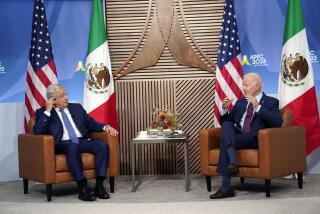
Biden and López Obrador talked fentanyl and U.S.-Mexico migration. They pledged solidarity
Nov. 17, 2023
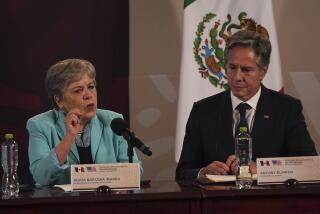
News Analysis: Biden administration’s complicated relationship with Mexico ‘is not working, but it is not kaput’
Oct. 8, 2023
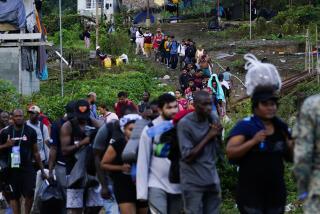
Biden administration is resuming deportation flights for Venezuelan migrants, sources say
Oct. 5, 2023
Get our Essential Politics newsletter
The latest news, analysis and insights from our politics team.
You may occasionally receive promotional content from the Los Angeles Times.

Tracy Wilkinson covers foreign affairs from the Los Angeles Times’ Washington, D.C., bureau.
More From the Los Angeles Times

Trump posts video with an image of a hogtied Biden, drawing rebuke from president’s campaign
March 29, 2024
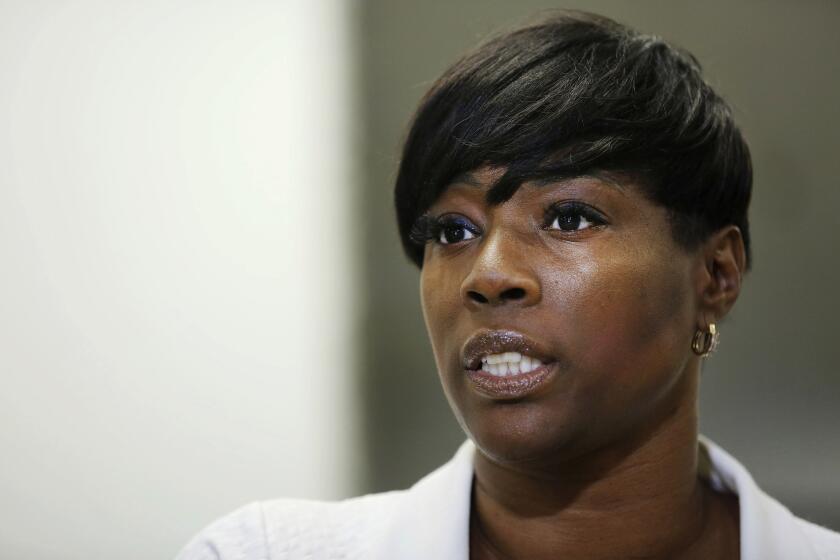
Texas appeals court overturns voter fraud conviction for woman on probation
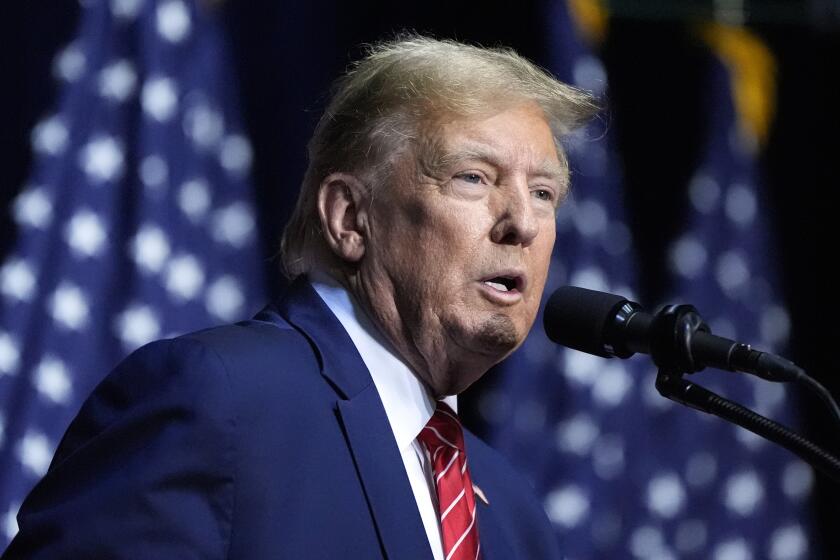
D.A. suggests Trump violated gag order with post about daughter of hush-money trial judge
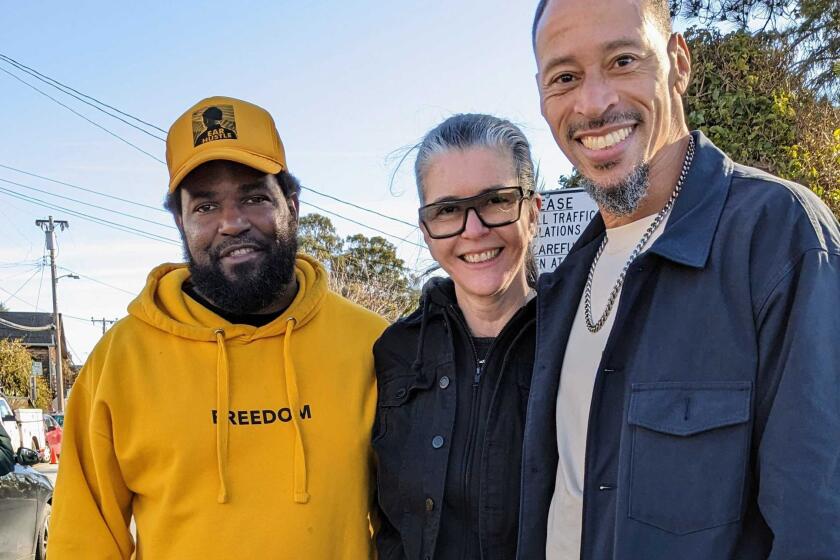
Days before Easter, Newsom announces dozens of pardons and commutations
Global Cornell
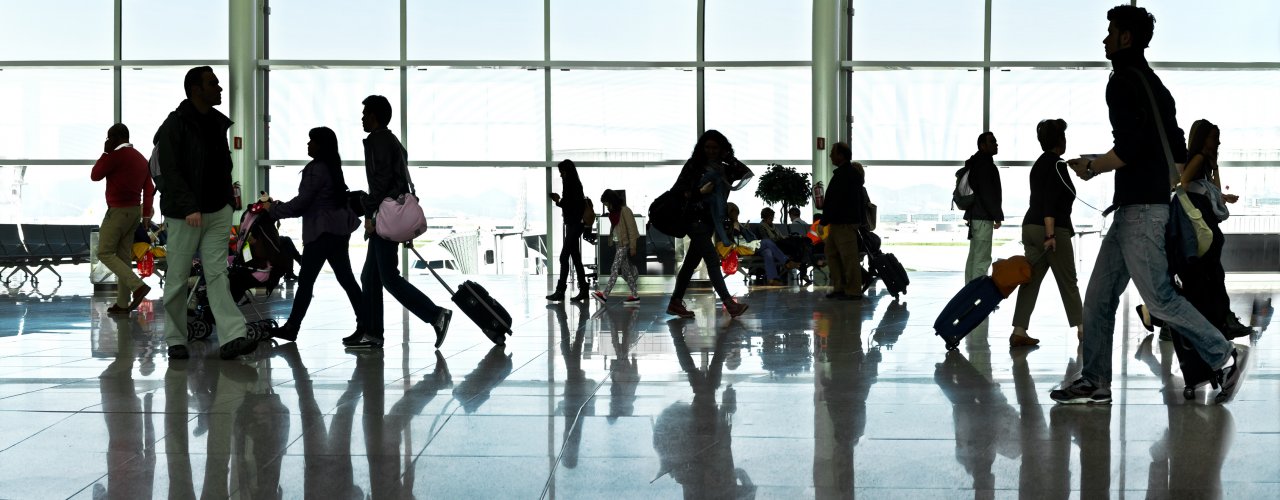
Register Your Travel
Travel to Cuba
U.S. government restrictions on travel to Cuba require that all travelers to Cuba from U.S. institutions travel under specific licenses or categories. Most Cornell travelers to Cuba fall under two categories: educational tours or professional research or conferences. We can help you navigate the shifting restrictions and legislation surrounding Cuba travel. It will take a little more time and care, so plan early to help ensure successful travel to Cuba.
Key Steps in Planning Your Trip to Cuba
1. Ensure your travel falls under permitted travel category (see below). If you are a Cornell student, faculty, or staff, you must meet the qualifications to be eligible for travel to Cuba.
2. Apply for approval to travel. Send an email to the Office of the Vice Provost for International Affairs at [email protected] , with a copy to the Export Controls Office at [email protected] . Please allow at least one month for processing the approval and getting the appropriate paperwork in place, especially if your trip involves the import/export of technology. In addition to this application, international students, scholars and employees may be required to apply for visas to Cuba in their home country.
Include the following information in your email:
Your full name and NetID.
Your status (faculty, staff, undergraduate student, or graduate student; full-time or part-time; and temporary or permanent).
Dates of travel in Cuba (from [date] to [date]).
The relevant paragraph that describes the purpose of your travel from the list of qualifying activities below.
A brief description (or file attachments) of your intended business in Cuba.
Name and address of the hotel/lodging.
You’ll be notified once you’ve received approval to travel to Cuba. For record keeping purposes, the Vice Provost for International Affairs will issue an official memo for your trip, stating the basis for the travel. No other member of the University community, including chairs, deans, or department heads, may provide a verification letter for travel to Cuba.
3. Complete Cuba Travel Certification Form for insurance purposes. Download the form here (Cornell NetID required) and email the completed form to [email protected] . Please allow at least two weeks for processing.
4. Register your travel. All students, staff, and faculty are required (per Policy 8.5) to add their Cornell-related international travel plans to the Cornell International Travel Registry .
5. Prepare to travel. Be sure to bring the following with your passport/travel documents: Official OVPIA letter, a detailed agenda/itinerary for the entire stay in Cuba, and visa (if required).
6. Upon return, keep your receipts. OFAC regulations state that travelers are responsible for maintaining a record of their trip receipts and financial documents for at least 5 years. Before engaging in Cornell travel to Cuba, read the "Records and recordkeeping" requirements set forth under the Office of Foreign Assets Control Recordkeeping Requirements (31 C.F.R. §501.601 and §501.602) and General Cuba license, 31 CFR 515.565(a).
Permitted Activities - Cuba General License for Educational Activity
The general license (published by the United States Office of Foreign Assets Control as part of the Cuban Assets Control Regulations) authorizes accredited U.S. graduate and undergraduate degree-granting academic institutions to engage in Cuba travel-related transactions incident to certain educational activities.
If you are a Cornell student, faculty, or staff, you must meet the qualifications outlined in 31 CFR §515.565 Educational Activities or § 515.564 Professional research and professional meetings in Cuba to be eligible for travel to Cuba.
To meet the qualifications, your travel to Cuba must be under the auspices of Cornell University. In addition, it must be related to at least one of the following:
Participation in a Cornell-sponsored, structured, educational program in Cuba as part of a course offered for credit.
Noncommercial academic research in Cuba specifically related to Cuba and for the purpose of obtaining an undergraduate or graduate degree.
- Participation in a formal course of study at a Cuban academic institution, provided the formal course of study in Cuba will be accepted for credit toward your graduate or undergraduate degree.
- Teaching at a Cuban academic institution if you are regularly employed in a teaching capacity at Cornell University.
- Sponsorship of a Cuban scholar to teach or engage in other scholarly activity at Cornell University (in addition to those transactions authorized by the general license contained in § 515.571).
- Sponsorship or co-sponsorship of noncommercial academic seminars, conferences, symposia, or workshops related to Cuba or global issues involving Cuba, and attendance at such events by Cornell faculty, staff, or students.
- Establishment of academic exchanges (on behalf of Cornell) and joint non-commercial academic research projects with universities or academic institutions in Cuba.
- Provision of standardized testing services—including professional certificate examinations, university entrance examinations, language examinations, and related preparatory services for such exams—to Cuban nationals, wherever they are located.
- Provision of internet-based courses—including distance-learning and Massive Open Online Courses—to Cuban nationals, wherever located, provided that the course content is at the undergraduate level or below.
- The organization of, and preparation for, activities described above by employees of Cornell.
- Facilitation by an organization that is a person subject to U.S. jurisdiction, or a member of the staff of such an organization, of licensed educational activities in Cuba on behalf of Cornell, provided that: (1) the organization is directly affiliated with Cornell; and (2) the organization facilitates educational activities that meet the requirements of one or more of the general licenses set forth in §515.565(a)(1) through (3) and (6).
Professional research and professional meetings may be permissible travel purposes in certain circumstances – please contact the Export Controls Office for information about this requirement or other types of qualified travel.
Note that the US Treasury Department’s Office of Foreign Assets Control sets the rules and restrictions which govern travel to Cuba, and specifically prohibit all tourist-oriented activities in Cuba. In special circumstances and if the activity qualifies, Cornell University may consider applying for a specific license for proposed educational or research activities.
These guidelines apply to all students, faculty and staff at Cornell University regardless of whether they hold dual citizenship or are nationals of countries that do not restrict travel to Cuba.
For your reference, you may want to visit the United States Department of the Treasury's "Resource Center" on Cuba sanctions: Guidance Regarding Travel Between the United States and Cuba.
- Skip to main content
- Skip to "About this site"

Language selection
Search travel.gc.ca.
Help us to improve our website. Take our survey !
COVID-19: travel health notice for all travellers
Cuba travel advice
Latest updates: The Need help? section was updated.
Last updated: March 25, 2024 10:25 ET
On this page
Safety and security, entry and exit requirements, laws and culture, natural disasters and climate, cuba - exercise a high degree of caution.
Exercise a high degree of caution in Cuba due to shortages of basic necessities including food, medicine and fuel.
Resort areas - Take normal security precautions
- Cayo Largo del Sur
- Cayo Santa Maria
Guardalavaca
Back to top
Petty crime
Petty crime, such as pickpocketing and purse snatching, occurs.
Theft generally occurs in crowded places such as:
- tourist areas
- public buses
- night clubs
It can also occur in isolated areas.
Theft from hotel rooms, particularly in private accommodations ( casas particulares ), and from cars is common.
- Ensure that your personal belongings, including your passport and other travel documents, are secure at all times
- Don’t pack valuables in your checked luggage
- Avoid showing signs of affluence
- Keep electronic devices out of sight
- Carry valid identification at all times
- Keep a digital and a hard copy of your ID and travel documents
- Avoid carrying large amounts of cash
- Never leave belongings unattended in a vehicle, even in the trunk
Violent crime
Incidents of violent crime are not frequent, but assaults may occur. They mainly occur during a burglary or robbery.
- Stay in accommodations with good security
- Keep your windows and doors locked at all times
- If threatened by robbers, don't resist
Credit card and ATM fraud may occur.
Be cautious when using debit or credit cards:
- pay careful attention when your cards are being handled by others
- use ATMs located in well-lit public areas or inside a bank or business
- avoid using card readers with an irregular or unusual feature
- cover the keypad with one hand when entering your PIN
- check for any unauthorized transactions on your account statements
Some businesses may try to charge exorbitant prices, namely taxis and classic car rentals. Disputes about overcharging may lead to violence.
- Always confirm prices before consuming or taking up a service
- Avoid running a tab
- Avoid leaving your credit card with bar or restaurant staff
- Check your bill to make sure it’s exact
Some hustlers specialize in defrauding tourists. Most of them speak some English or French and go out of their way to appear friendly. They may offer to serve as tour guides or to facilitate the purchase of cigars. Some have used violence in their efforts to steal tourists.
Fraudulent tour agents and taxi drivers also operate throughout the country, including at Havana’s international airport. Thefts of luggage from taxi trunks have occurred.
In bars, sex workers, including minors, may be very persistent and intrusive with tourists who refuse their advances. Foreigners, including Canadians, have been the victim of theft after engaging in sexual relations, and some of them have faced child sex accusations.
- Use reputable tour operators and registered taxis only
- Avoid independent street vendors
- Be wary of strangers who seem too friendly
Overseas fraud
Cuba faces chronic and severe shortages of basic necessities, including:
- bottled water
- public water supply
- hard-currency
Fuel shortages are currently critical and affect a wide range of services. Travelling across the island is extremely challenging. Public transportation services, including taxis, are often disrupted, leaving tourists with few options to travel. Some travellers have been temporarily stranded with a rental car. Intermittent shortages of tap water provided by municipalities happen, including in Havana and in resorts.
Hotels and resorts, that often use generators during power outages, may not be able to maintain their services. Fuel shortages may also affect government services.
Local authorities enforce the rationing of food and medications, which could also affect travellers.
Shortages may lead to disruptions to other essential services. There are often long line-ups at gas stations that have led to altercations.
- Plan accordingly
- Bring some basic necessities with you such as toiletries and medication
- Keep a supply of water, food and fuel on hand
- Make sure you always have access to a complete emergency kit
Power outages
Power outages occur regularly outside of Havana and touristic areas.
Obtaining services during an outage is challenging.
Women’s safety
Women travelling alone may be subject to some forms of sexual harassment
Incidents of sexual assault against Canadian women have occurred, including at beach resorts.
If you’re the victim of a sexual assault, you should report it immediately to the nearest Canadian consulate or embassy and seek medical assistance. You should also report the incident to Cuban authorities and ensure that local police provide you with a Comprobante de Denuncia. This document confirms that a report has been filed.
A criminal investigation will likely not be possible if no formal complaint is made to Cuban authorities before you depart the country.
Police officers may speak only Spanish.
Advice for women travellers
Spiked food and drinks
Snacks, beverages, gum and cigarettes may contain drugs that could put you at risk of sexual assault and robbery.
- Be wary of accepting these items from new acquaintances
- Never leave food or drinks unattended or in the care of strangers
Telecommunications
The telecommunications network in Cuba is poor. Connections are unreliable and may be intermittent.
Some Canadian cell phones may not work, even in large cities. Internet access is limited across the island.
Local authorities control telecommunications. They may block access to mobile phone and Internet in case of civil unrest or before demonstrations.
- Don’t rely on your mobile phone for emergencies, especially outside major cities
- Subscribe to and install a VPN service before leaving Canada
- Avoid travelling alone
- Inform a family member or friend of your itinerary
Online transactions
Online banking or shopping may be challenging in Cuba, if at all possible. Most Cuban websites are unsecure. Many are inaccessible.
Some travellers, who bought their travel package online on a travel website in Canada, found out on arrival in Cuba that their hotel received no reservation or payment.
- Avoid online shopping
- Check with the hotel if they accept online reservations and payments if you plan to book online
Demonstrations
Demonstrations sometimes occur, even if taking part in them may be illegal. Local authorities will break up political demonstrations or gatherings not sanctioned by the government. They may also block access to the Internet, including social media, without notice.
Even peaceful demonstrations can turn violent at any time. They can also lead to disruptions to traffic, public transportation.
- Don’t participate in demonstrations
- Avoid areas where demonstrations and large gatherings are taking place
- Follow the instructions of local authorities
- Monitor local media for information on ongoing demonstrations
Mass gatherings (large-scale events)
Water activities
Rescue services may not be consistent with international standards. Tidal changes can cause powerful currents, and riptides are common. Not all beaches have lifeguards or warning flags to warn of hazardous conditions.
- Never swim alone or after hours
- Don’t swim outside marked areas
- Monitor weather warnings
- Avoid visiting beaches or coastal areas during periods of severe weather warnings
- Don’t dive into unknown water, as hidden rocks or shallow depths can cause serious injury or death
- Consult residents and tour operators for information on possible hazards and safe swimming areas
Tour operators and diving centres may not adhere to international standards.
If you undertake adventure sports, such as diving:
- choose a reputable company that has insurance
- ensure that your travel insurance covers the recreational activities you choose
- don’t use the equipment if you have any doubts about its safety
Recreational boating
If you are planning to go boating:
- know the navigation rules
- make sure life jackets are available for all passengers
- follow safe practices for all water activities such as jet-skiing, water-skiing or fishing
- don’t overload your boat capacity
- carry a VHF marine radio that will generate your position in case of emergency
- be prepared for emergencies
Water safety abroad
Road safety
Road safety standards are poor throughout the country. Accidents causing fatalities are common.
Road conditions
Road conditions are poor throughout the island, with the exception of the Central Highway, which runs west to east across the country. Driving may be dangerous due to:
- poorly maintained roads
- lack of signage
- Inadequate lighting
- roaming livestock
- horse-drawn carts
- pedestrians
- slow-moving traffic
Most Cuban cars are old and in poor condition. They often lack standard safety equipment. Some cars and most bicycles don’t have functioning lights.
Driving habits
Some drivers don’t respect traffic laws. Many of them, driving an electric vehicle for which licence and registration are not required, are inexperienced and unqualified. Drinking and driving is also common.
If you choose to drive in Cuba:
- do so defensively at all times
- avoid travelling at night
- travel in groups when possible
- never pick up hitchhikers, who have been known to assault drivers
Public transportation
City buses are scarce, overcrowded and poorly maintained. Bus service is not reliable.
Incidents of pickpocketing are frequent.
Tour companies offer good bus service between airports and the all-inclusive resorts. Buses used for organized day trips from hotels are usually in good condition.
Official taxis are generally reliable.
Old-model private vehicles offered as taxis are not equipped with standard safety features. They have no insurance coverage for passengers in case of an accident.
- Use only registered taxis
- Avoid flagging a taxi down on the street
- Never share a taxi with strangers
- Agree on a fare before departure, as taxis are not equipped with meters
The rail network is comprehensive, connecting most of the island, but it’s unreliable and slow. Train service is limited to Cuban nationals only.
Health incidents
The Government of Canada continues to investigate the potential causes of unexplained health incidents reported by some Canadian diplomatic staff and dependents posted to Havana.
There is no evidence that Canadian travellers to Cuba are at risk.
We do not make assessments on the compliance of foreign domestic airlines with international safety standards.
Information about foreign domestic airlines
Every country or territory decides who can enter or exit through its borders. The Government of Canada cannot intervene on your behalf if you do not meet your destination’s entry or exit requirements.
We have obtained the information on this page from the Cuban authorities. It can, however, change at any time.
Verify this information with the Foreign Representatives in Canada .
Entry requirements vary depending on the type of passport you use for travel.
Before you travel, check with your transportation company about passport requirements. Its rules on passport validity may be more stringent than the country’s entry rules.
Regular Canadian passport
Your passport must be valid for the expected duration of your stay in Cuba.
Passport for official travel
Different entry rules may apply.
Official travel
Passport with “X” gender identifier
While the Government of Canada issues passports with an “X” gender identifier, it cannot guarantee your entry or transit through other countries. You might face entry restrictions in countries that do not recognize the “X” gender identifier. Before you leave, check with the closest foreign representative for your destination.
Other travel documents
Different entry rules may apply when travelling with a temporary passport or an emergency travel document. Before you leave, check with the closest foreign representative for your destination.
Useful links
- Foreign Representatives in Canada
- Canadian passports
Tourist visa: required Family visa: required Business visa: required
Tourist card
Canadian tourists travelling to Cuba need a visa, known as tourist card. The tourist card allows you to stay in Cuba for up to 90 days. The tourist card is generally included in holiday packages provided by tour operators or airlines providing direct flights from Canada. If you go to Cuba on your own or transit via another country, you are responsible for obtaining the tourist card from a Cuban government office in Canada. You may also buy it at some airports in Canada and in the United States.
Length of stay
As a Canadian tourist, you may stay in Cuba for up to 6 months.
However, you must obtain an extension of stay if you intend to stay longer than the initial 90-day period allowed by the standard tourist card.
D’Viajeros traveller information portal – Government of Cuba
Arrival form
You must provide information on your arrival in Cuba via an online form within 72 hours before entering the country.
Once done, you will receive a QR code by email.
You must show an electronic or printed version of the QR code to authorities upon arrival.
Health insurance
You must show proof of valid health insurance to enter Cuba.
All health insurance policies are recognized in Cuba, except those issued by U.S. insurance companies. However, the Cuban immigration authorities will decide which proof of health insurance is acceptable.
Proof of health insurance may be:
- an insurance policy
- an insurance certificate
- a Canadian provincial health insurance card
If you don’t have proof of health insurance or if the proof you present doesn’t satisfy the Cuban immigration authorities, you may have to obtain health insurance from a Cuban insurance company upon arrival. This insurance may have limited coverage. Local authorities may refuse your entry to the country.
Canadian provincial health care coverage provides very limited coverage outside Canada. It won’t pay for medical bills up-front. It does not include air evacuation, and neither does Cuban health insurance.
Cuban authorities won’t let you leave the country with outstanding medical bills, which are payable by credit card only. You will need to remain in Cuba until all debts are paid.
- Make sure you purchase the best health insurance you can afford
- Ensure the insurance includes medical evacuation and hospital stays
More on Travel insurance
Other entry requirements
Customs officials will ask you to show them:
- a return or onward ticket
- proof of sufficient funds to cover your stay
- proof that you have a place to stay if arriving with “air only” tickets
Dual citizenship
If you’re both a Canadian and Cuban citizen, you must:
- present your valid Cuban passport to the immigration authorities to enter Cuba
- have a valid Canadian passport to return to Canada
If you were born in Cuba, you should contact a Cuban government office in Canada before you leave to ensure compliance with Cuban regulations, regardless of your current citizenship. Failure to do so may result in your being refused entry into Cuba or being detained upon entry.
Canadian permanent residents
You will not be able to leave Cuba if you are a Canadian permanent resident and are without a valid permanent resident card. If your card is lost or stolen, you must contact the Canadian Embassy in Havana to obtain a travel document that will allow you to leave the country. This procedure can take up to 10 working days. Once the document is ready, you'll need to make an appointment with the immigration section of the Canadian Embassy in Havana to collect it before returning to Canada.
Permanent resident travel document: How to apply
Health screening
You may be subjected to a medical screening or interrogation by public health authorities when you enter or exit Cuba, or when reporting for domestic flights.
You may be subject to a mandatory quarantine for medical observation for up to 7 days if local authorities believe that:
- you have come in contact with a suspected carrier of one of these viruses
- you’re arriving from a country with a known epidemic
Children and travel
- Travelling with children
Yellow fever
Learn about potential entry requirements related to yellow fever (vaccines section).
Relevant Travel Health Notices
- Global Measles Notice - 13 March, 2024
- Zika virus: Advice for travellers - 31 August, 2023
- COVID-19 and International Travel - 13 March, 2024
This section contains information on possible health risks and restrictions regularly found or ongoing in the destination. Follow this advice to lower your risk of becoming ill while travelling. Not all risks are listed below.
Consult a health care professional or visit a travel health clinic preferably 6 weeks before you travel to get personalized health advice and recommendations.
Routine vaccines
Be sure that your routine vaccinations , as per your province or territory , are up-to-date before travelling, regardless of your destination.
Some of these vaccinations include measles-mumps-rubella (MMR), diphtheria, tetanus, pertussis, polio, varicella (chickenpox), influenza and others.
Pre-travel vaccines and medications
You may be at risk for preventable diseases while travelling in this destination. Talk to a travel health professional about which medications or vaccines may be right for you, based on your destination and itinerary.
Yellow fever is a disease caused by a flavivirus from the bite of an infected mosquito.
Travellers get vaccinated either because it is required to enter a country or because it is recommended for their protection.
- There is no risk of yellow fever in this country.
Country Entry Requirement*
- Proof of vaccination is required if you are coming from or have transited through an airport of a country where yellow fever occurs.
Recommendation
- Vaccination is not recommended.
- Discuss travel plans, activities, and destinations with a health care professional.
- Contact a designated Yellow Fever Vaccination Centre well in advance of your trip to arrange for vaccination.
About Yellow Fever
Yellow Fever Vaccination Centres in Canada * It is important to note that country entry requirements may not reflect your risk of yellow fever at your destination. It is recommended that you contact the nearest diplomatic or consular office of the destination(s) you will be visiting to verify any additional entry requirements.
There is a risk of hepatitis A in this destination. It is a disease of the liver. People can get hepatitis A if they ingest contaminated food or water, eat foods prepared by an infectious person, or if they have close physical contact (such as oral-anal sex) with an infectious person, although casual contact among people does not spread the virus.
Practise safe food and water precautions and wash your hands often. Vaccination is recommended for all travellers to areas where hepatitis A is present.
Measles is a highly contagious viral disease. It can spread quickly from person to person by direct contact and through droplets in the air.
Anyone who is not protected against measles is at risk of being infected with it when travelling internationally.
Regardless of where you are going, talk to a health care professional before travelling to make sure you are fully protected against measles.
Hepatitis B is a risk in every destination. It is a viral liver disease that is easily transmitted from one person to another through exposure to blood and body fluids containing the hepatitis B virus. Travellers who may be exposed to blood or other bodily fluids (e.g., through sexual contact, medical treatment, sharing needles, tattooing, acupuncture or occupational exposure) are at higher risk of getting hepatitis B.
Hepatitis B vaccination is recommended for all travellers. Prevent hepatitis B infection by practicing safe sex, only using new and sterile drug equipment, and only getting tattoos and piercings in settings that follow public health regulations and standards.
The best way to protect yourself from seasonal influenza (flu) is to get vaccinated every year. Get the flu shot at least 2 weeks before travelling.
The flu occurs worldwide.
- In the Northern Hemisphere, the flu season usually runs from November to April.
- In the Southern Hemisphere, the flu season usually runs between April and October.
- In the tropics, there is flu activity year round.
The flu vaccine available in one hemisphere may only offer partial protection against the flu in the other hemisphere.
The flu virus spreads from person to person when they cough or sneeze or by touching objects and surfaces that have been contaminated with the virus. Clean your hands often and wear a mask if you have a fever or respiratory symptoms.
In this destination, rabies is carried by dogs and some wildlife, including bats. Rabies is a deadly disease that spreads to humans primarily through bites or scratches from an infected animal. While travelling, take precautions , including keeping your distance from animals (including free-roaming dogs), and closely supervising children.
If you are bitten or scratched by an animal while travelling, immediately wash the wound with soap and clean water and see a health care professional. Rabies treatment is often available in this destination.
Before travel, discuss rabies vaccination with a health care professional. It may be recommended for travellers who are at high risk of exposure (e.g., occupational risk such as veterinarians and wildlife workers, children, adventure travellers and spelunkers, and others in close contact with animals).
Coronavirus disease (COVID-19) is an infectious viral disease. It can spread from person to person by direct contact and through droplets in the air.
It is recommended that all eligible travellers complete a COVID-19 vaccine series along with any additional recommended doses in Canada before travelling. Evidence shows that vaccines are very effective at preventing severe illness, hospitalization and death from COVID-19. While vaccination provides better protection against serious illness, you may still be at risk of infection from the virus that causes COVID-19. Anyone who has not completed a vaccine series is at increased risk of being infected with the virus that causes COVID-19 and is at greater risk for severe disease when travelling internationally.
Before travelling, verify your destination’s COVID-19 vaccination entry/exit requirements. Regardless of where you are going, talk to a health care professional before travelling to make sure you are adequately protected against COVID-19.
Safe food and water precautions
Many illnesses can be caused by eating food or drinking beverages contaminated by bacteria, parasites, toxins, or viruses, or by swimming or bathing in contaminated water.
- Learn more about food and water precautions to take to avoid getting sick by visiting our eat and drink safely abroad page. Remember: Boil it, cook it, peel it, or leave it!
- Avoid getting water into your eyes, mouth or nose when swimming or participating in activities in freshwater (streams, canals, lakes), particularly after flooding or heavy rain. Water may look clean but could still be polluted or contaminated.
- Avoid inhaling or swallowing water while bathing, showering, or swimming in pools or hot tubs.
Travellers' diarrhea is the most common illness affecting travellers. It is spread from eating or drinking contaminated food or water.
Risk of developing travellers' diarrhea increases when travelling in regions with poor standards of hygiene and sanitation. Practise safe food and water precautions.
The most important treatment for travellers' diarrhea is rehydration (drinking lots of fluids). Carry oral rehydration salts when travelling.
Typhoid is a bacterial infection spread by contaminated food or water. Risk is higher among children, travellers going to rural areas, travellers visiting friends and relatives or those travelling for a long period of time.
Travellers visiting regions with a risk of typhoid, especially those exposed to places with poor sanitation, should speak to a health care professional about vaccination.
Salmonellosis is a common illness among travellers to this country. It can be spread through contaminated food or beverages, such as raw or undercooked poultry and eggs, as well as fruits or vegetables.
Practice safe food and water precautions . This includes only eating food that is properly cooked and still hot when served.
Pregnant women, children under 5 years of age, those over 60 years of age, and those with weakened immune systems are at greater risk of becoming seriously ill.
Most people recover on their own without medical treatment and from proper rehydration (drinking lots of fluids).
- Carry oral rehydration salts when travelling.
Travellers with severe symptoms should consult a health care professional as soon as possible.
Insect bite prevention
Many diseases are spread by the bites of infected insects such as mosquitoes, ticks, fleas or flies. When travelling to areas where infected insects may be present:
- Use insect repellent (bug spray) on exposed skin
- Cover up with light-coloured, loose clothes made of tightly woven materials such as nylon or polyester
- Minimize exposure to insects
- Use mosquito netting when sleeping outdoors or in buildings that are not fully enclosed
To learn more about how you can reduce your risk of infection and disease caused by bites, both at home and abroad, visit our insect bite prevention page.
Find out what types of insects are present where you’re travelling, when they’re most active, and the symptoms of the diseases they spread.
There is a risk of chikungunya in this country. The risk may vary between regions of a country. Chikungunya is a virus spread through the bite of an infected mosquito. Chikungunya can cause a viral disease that typically causes fever and pain in the joints. In some cases, the joint pain can be severe and last for months or years.
Protect yourself from mosquito bites at all times. There is no vaccine available for chikungunya.
- In this country, dengue is a risk to travellers. It is a viral disease spread to humans by mosquito bites.
- Dengue can cause flu-like symptoms. In some cases, it can lead to severe dengue, which can be fatal.
- The level of risk of dengue changes seasonally, and varies from year to year. The level of risk also varies between regions in a country and can depend on the elevation in the region.
- Mosquitoes carrying dengue typically bite during the daytime, particularly around sunrise and sunset.
- Protect yourself from mosquito bites . There is no vaccine or medication that protects against dengue.
Zika virus is a risk in this country.
Zika virus is primarily spread through the bite of an infected mosquito. It can also be sexually transmitted. Zika virus can cause serious birth defects.
During your trip:
- Prevent mosquito bites at all times.
- Use condoms correctly or avoid sexual contact, particularly if you are pregnant.
If you are pregnant or planning a pregnancy, you should discuss the potential risks of travelling to this destination with your health care provider. You may choose to avoid or postpone travel.
For more information, see Zika virus: Pregnant or planning a pregnancy.
Animal precautions
Some infections, such as rabies and influenza, can be shared between humans and animals. Certain types of activities may increase your chance of contact with animals, such as travelling in rural or forested areas, camping, hiking, and visiting wet markets (places where live animals are slaughtered and sold) or caves.
Travellers are cautioned to avoid contact with animals, including dogs, livestock (pigs, cows), monkeys, snakes, rodents, birds, and bats, and to avoid eating undercooked wild game.
Closely supervise children, as they are more likely to come in contact with animals.
Person-to-person infections
Stay home if you’re sick and practise proper cough and sneeze etiquette , which includes coughing or sneezing into a tissue or the bend of your arm, not your hand. Reduce your risk of colds, the flu and other illnesses by:
- washing your hands often
- avoiding or limiting the amount of time spent in closed spaces, crowded places, or at large-scale events (concerts, sporting events, rallies)
- avoiding close physical contact with people who may be showing symptoms of illness
Sexually transmitted infections (STIs) , HIV , and mpox are spread through blood and bodily fluids; use condoms, practise safe sex, and limit your number of sexual partners. Check with your local public health authority pre-travel to determine your eligibility for mpox vaccine.
Medical services and facilities
Good health care is limited in availability.
The health system is government-owned. The Cuban government operates hospitals and clinics throughout the island.
Medical professionals are generally adequately trained. However, facilities are in poor condition. They lack basic drugs, medical supplies and equipment. Hygiene practices may be inadequate.
Medical services are also available at most hotels and international clinics located in resort areas, where doctors and nurses provide initial emergency medical care reserved for foreigners. Health care provided in those clinics is usually better than services offered in public facilities.
Mental health care facilities are extremely limited. There are no hotlines available for this type of care in the country.
Emergency and ambulance services are limited. Response times may be slow, especially outside tourist areas.
Make sure you get travel insurance that includes coverage for medical evacuation and hospital stays.
Travel health and safety
Many prescription medications may not be available in Cuba.
If you take prescription medication, you’re responsible for determining their legality in the country.
- Bring enough of your medication with you
- Always keep your medication in the original container
- Pack your medication in your carry-on luggage
- Carry a paper and an electronic copy of your prescriptions
Cuba faces severe medicine shortages, including antibiotics and common pain killers. In addition of your prescription medication, you should also bring your own basic medicine in sufficient quantities to last beyond the length of your intended stay.
Public health authorities implement insect control measures including periodic fumigation and aerial spraying.
- Consult your doctor before traveling to see if the situation could affect you, especially if you suffer from respiratory ailments
- Stay away from a nearby fumigation process
Death abroad
Standards of mortuary services in Cuba differ from those in Canada. Cultural and religious beliefs are not taken into consideration. Autopsies are mandatory.
There is one funeral home and one morgue in the country which cater to foreigners. Both are located in Havana. Only these facilities have the authorization to issue appropriate documentation to accompany human remains. Timelines for the repatriation of human remains are long and costly.
The capacity for refrigeration is limited, as well as the availability of coffins and urns. Embalming materials and techniques are unlike those in Canada. Embalming may not be an option in some circumstances.
Ensure your insurance includes coverage for the repatriation of human remains.
Death Abroad Factsheet
Keep in Mind...
The decision to travel is the sole responsibility of the traveller. The traveller is also responsible for his or her own personal safety.
Be prepared. Do not expect medical services to be the same as in Canada. Pack a travel health kit , especially if you will be travelling away from major city centres.
You must abide by local laws.
Learn about what you should do and how we can help if you are arrested or detained abroad .
Transfer to a Canadian prison
Canada and Cuba accede the Treaty between the Government of Canada and the Government of the Republic of Cuba on the Serving of Penal Sentences. This enables a Canadian imprisoned in Cuba to request a transfer to a Canadian prison to complete a sentence. The transfer requires the agreement of both Canadian and Cuban authorities. This process can take a long time, and there is no guarantee that the transfer will be approved by either or both sides.
Cuban criminal justice
The criminal justice system in Cuba differs significantly from that in Canada. Charges are not laid until the investigation is complete. If you’re arrested in Cuba, you will likely be detained during the entire period of investigation. You should expect long delays to resolve your case. You will not be allowed to leave the country during this period.
Cuba’s constitution allows the death penalty, but since 2003, the country has effectively had a moratorium on carrying out death sentences.
Investments
Private property rights in Cuba are strictly controlled. Only Cubans and permanent residents can buy a property in Cuba or register a privately owned vehicle. Be wary of strangers or acquaintances offering to purchase these items on your behalf. If you plan on making investments in Cuba, seek legal advice in Canada and Cuba. Do so before making commitments. Related disputes could take time and be costly to resolve.
Penalties for possession, use or trafficking of illegal drugs are severe. Convicted offenders can expect lengthy prison sentences.
- Pack your own luggage and monitor it closely at all times
- Don’t transport other people’s packages, bags or suitcases
Drugs, alcohol and travel
Child sex tourism
It's a serious criminal offence to have sex with minors in Cuba.
Local authorities are actively working to prevent child sex tourism. Tourists, including Canadians, have been convicted of offences related to the corruption of minors aged 16 and under.
Prison sentences for this type of crime range from 7 to 25 years. Release on bail before trial is unlikely.
Child Sex Tourism: It’s a Crime
To get married in Cuba, you must provide several documents including:
- your birth certificate
- a copy of your passport
- your decree absolute certificate if divorced
- a death certificate for your spouse and a marriage certificate if widowed
- an affidavit of your single status if you have never been married before
All documents must be translated into Spanish, certified, authenticated and legalised by the Embassy of Cuba in Canada.
Consult the Embassy of Cuba in Canada if you wish to marry in Cuba, including to a Cuban national.
- Foreign diplomatic missions and consulates in Canada
- Marriage overseas factsheet
Drones are prohibited.
They will be confiscated by the authorities upon entry.
Photography
Professional photographers require a visa to work in Cuba. They may also need a permit to import their equipment.
It’s forbidden to photograph, including with drones:
- military and police installations or personnel
- harbour, rail and airport facilities
Military zones and any other restricted or heavily guarded areas are not always identified.
Identification
Authorities may request to see your ID at any time.
- Keep a photocopy of your passport in case it’s lost or seized
- Keep a digital copy of your ID and travel documents
Dual citizenship is not legally recognized in Cuba.
If local authorities consider you a citizen of Cuba, they may refuse to grant you access to Canadian consular services. This will prevent us from providing you with those services.
Travellers with dual citizenship
International Child Abduction
The Hague Convention on the Civil Aspects of International Child Abduction is an international treaty. It can help parents with the return of children who have been removed to or retained in certain countries in violation of custody rights. It does not apply between Canada and Cuba.
If your child was wrongfully taken to, or is being held in Cuba by an abducting parent:
- act as quickly as you can
- consult a lawyer in Canada and in Cuba to explore all the legal options for the return of your child
- report the situation to the nearest Canadian government office abroad or to the Vulnerable Children’s Consular Unit at Global Affairs Canada by calling the Emergency Watch and Response Centre.
If your child was removed from a country other than Canada, consult a lawyer to determine if The Hague Convention applies.
Be aware that Canadian consular officials cannot interfere in private legal matters or in another country’s judicial affairs.
- International Child Abduction: A Guidebook for Left-Behind Parents
- Canadian embassies and consulates by destination
- Emergency Watch and Response Centre
Imports and exports
Personal effects and medicine.
Tourists are allowed to enter Cuba with personal effects but items entering the country for donations may be subject to import rules. They could be seized and taxed in accordance with local legislation. This includes:
- new or used material goods
- personal care products
- medications
Cuban customs officials have the authority to decide what they deem to be for the tourist's personal use. They may apply steep tariffs for personal baggage exceeding the allowable weight.
You may export:
- up to 20 cigars without documentation
- up to 50 cigars if they are in their original container, closed and sealed with the official hologram
If exceeding these amounts, you must provide a guarantee of origin certificate.
Failure to comply with this regulation will lead to the seizure of the cigars without compensation.
Art objects
Art objects, including artifacts and paintings purchased in Cuba, must be accompanied by an export permit. It’s usually provided by state-owned galleries.
In the absence of such a permit, items must be registered with the Registro Nacional de Bienes Culturales.
Ministry of Culture – Government of Cuba
Electronic devices
Electronic devices with GPS technology may be confiscated upon entry and returned upon departure.
Satellite telephones are forbidden.
Electronic cigarettes and personal vaporizers
You cannot bring electronic cigarettes or personal vaporizers to Cuba.
Customs officials will seize these items upon arrival.
Black market
Street vendors may offer you black-market goods, such as cigars, or ask to change dollars for Cuban currency.
Engaging in black-market transactions is illegal and can lead to difficulties with the Cuban authorities.
Cuban Customs Administration – Government of Cuba
Boat traffic
The U.S. government closely monitors boat traffic in the Straits of Florida. It will seize any vessel not bearing a licence from the Office of Foreign Assets Control (OFAC) if it believes it’s headed for Cuba.
You’re subject to these measures if you dock your Canadian-registered boat in Florida. You’ll be exempted if you are simply en route to Cuba via the U.S.
If travelling by boat to Cuba from the US:
- Make sure to know the regulation related to docking and port controls
- Expect thorough search and interrogations
You should carry an international driving permit.
International Driving Permit
Traffic accidents
Traffic accidents have led to arrest and detentions of Canadians in the past.
Accidents resulting in death or injury are treated as crimes. The onus is on the driver to prove innocence. If you’re found to bear responsibility in a traffic accident resulting in serious injury or death, you may face up to 10 years in prison.
If you’re involved in an accident:
- don’t leave the scene
- don’t move your vehicle
- call the police
While car insurance is mandatory for foreign drivers and foreign-registered vehicles, it's not for Cuban citizens. As a result, most local drivers don't carry a car insurance. You shouldn’t expect compensation for vehicle damage or personal injury from a Cuban driver following a car accident.
Vehicle rentals
Car insurance coverage in Cuba differs from that in Canada.
Rental agencies are government-controlled. If you’re found to be at fault in an accident, the rental agency will nullify your coverage and seek compensation to cover the cost of repairs.
Cuban authorities can prohibit you from leaving the country unless the rental agency receives payment or until all claims associated with an accident are settled.
Contract agreements don’t cover occasional drivers. As a result, the signatory is responsible for all people driving the vehicle.
- Be cautious if you rent a vehicle in Cuba
- Avoid renting a scooter; thieves target them and you may be responsible for the cost of its replacement
- Make sure to obtain a receipt when returning a rental vehicle
The currency of Cuba is the Cuban peso (CUP).
Credit cards issued by U.S. financial institutions or affiliated with U.S. banks are not accepted in Cuba.
Canadian credit cards are increasingly accepted at restaurants and hotels. However, the system is unreliable and bank cards may not work or may stop working without notice.
ATMs are rare and also unreliable. Each withdrawal is limited to 5 000 CUP, when possible.
You may obtain credit card cash advances at banks, hotels or a state-run exchange bureau, but in CUP only.
When travelling to Cuba, you should plan to bring enough currency to cover the duration of your stay. You should also plan for small bank notes to facilitate daily transactions such as, street food, taxis and tips.
You can easily exchange Canadian and American dollars, as well as euros for CUP at:
- the money exchange bureaus in Cuba’s international airports
- major hotels
- official exchange bureaus
It’s illegal to change money on the street or anywhere else other than authorized entities.
You cannot go through Cuban customs with more than 5 000 CUP.
Hurricane season
Hurricanes usually occur from mid-May to the end of November. During this period, even small tropical storms can quickly develop into major hurricanes.
These severe storms can put you at risk and hamper the provision of essential services.
If you decide to travel to a coastal area during the hurricane season:
- know that you expose yourself to serious safety risks
- be prepared to change your travel plans on short notice, including cutting short or cancelling your trip
- stay informed of the latest regional weather forecasts
- carry emergency contact information for your airline or tour operator
- follow the advice and instructions of local authorities
- Tornadoes, cyclones, hurricanes, typhoons and monsoons
- Large-scale emergencies abroad
- Active storm tracking and hurricane watches and warnings - United States’ National Hurricane Center
Rainy season
The rainy season extends from April to October.
Seasonal flooding can hamper overland travel and reduce the delivery of essential services. Roads may become impassable due to mudslides and landslides. Bridges, buildings, and infrastructure may be damaged.
Earthquakes
Cuba is located in an active seismic zone.
Earthquakes may occur. Even minor earthquakes can cause significant damage.
In the event of an earthquake:
- monitor local media to stay informed of the evolving situation
- follow the instructions of local authorities, including evacuation orders
- Earthquakes – What to Do?
- Latest earthquakes - U.S. Geological Survey
Local services
In case of emergency, dial:
- police: 106
- medical assistance: 104
- firefighters: 105
Consular assistance
For emergency consular assistance, call the Embassy of Canada to Cuba, in Havana, and follow the instructions. At any time, you may also contact the Emergency Watch and Response Centre in Ottawa.
The decision to travel is your choice and you are responsible for your personal safety abroad. We take the safety and security of Canadians abroad very seriously and provide credible and timely information in our Travel Advice to enable you to make well-informed decisions regarding your travel abroad.
The content on this page is provided for information only. While we make every effort to give you correct information, it is provided on an "as is" basis without warranty of any kind, expressed or implied. The Government of Canada does not assume responsibility and will not be liable for any damages in connection to the information provided.
If you need consular assistance while abroad, we will make every effort to help you. However, there may be constraints that will limit the ability of the Government of Canada to provide services.
Learn more about consular services .
Risk Levels
take normal security precautions.
Take similar precautions to those you would take in Canada.
Exercise a high degree of caution
There are certain safety and security concerns or the situation could change quickly. Be very cautious at all times, monitor local media and follow the instructions of local authorities.
IMPORTANT: The two levels below are official Government of Canada Travel Advisories and are issued when the safety and security of Canadians travelling or living in the country or region may be at risk.
Avoid non-essential travel
Your safety and security could be at risk. You should think about your need to travel to this country, territory or region based on family or business requirements, knowledge of or familiarity with the region, and other factors. If you are already there, think about whether you really need to be there. If you do not need to be there, you should think about leaving.
Avoid all travel
You should not travel to this country, territory or region. Your personal safety and security are at great risk. If you are already there, you should think about leaving if it is safe to do so.
Cuba Travel Policy Updates: What You Need to Know
Here's everything you need to know about the latest policies regarding American travel to Cuba. And remember: despite some restrictions, ViaHero can still help you plan an independent, 100% legal trip to Cuba. Find out how or keep reading for more info.
Want to make the most out of your trip? Tap into our network of local travel planners— Heroes —who build unique, locally-curated trip plans, designed just for you. Get started .
Cuba Travel Policy Update: June 2022
What the 2022 cuba travel policy update means, cuba travel policy update november 2017.

In June of 2022, the Biden administration loosened restrictions and re-authorized the People to People category for tour guide-led groups . These and subsequent changes effectively reversed the September 2020 Trump Administration announcement restricting Cuba travel .
As of June 9th, 2022 new regulations go into effect that expand the ways Americans can travel to Cuba .
Yes, you can still travel to Cuba legally with a US passport:
You can no longer travel to Cuba independently under the “People to People” category , which requires a sponsoring tour company and guides at all times. Luckily, you can still travel to Cuba, 100% legally and independently , under the “Support for the Cuban People” category .
What the latest changes mean for the future of Cuba travel:
As more travelers take advantage of the loosened restrictions and U.S. airlines offer more options, travel to Cuba is getting easier and less expensive. Travelers can visit Cuba using the Support for the Cuban People travel category with help from our local Cuban travel planners , who will design a customized itinerary that fits the traveler's interests and complies with the Support for the Cuban People category.
Want some help planning your legal trip? ViaHero is here to help .
How ViaHero Works

Choose a local

Message the local

Get a guidebook
Note: this policy change went into effect in november 2017. for a complete guide to cuba travel regulations, read this article on how to travel to cuba ..
President Trump recently announced changes to the Cuba travel policy for Americans. While you can still travel to Cuba , there are a number of new rules to keep in mind. The changes were announced on June 16, 2017, but were only recently implemented on November 9, 2017. Here's the scoop on the changes.
According to the Fact Sheet published by the Department of Treasury, here is what has changed:
Americans will no longer be able to :
- Spend money at hotels or military-run businesses, overseen by an organization named GAESA. Here's a full list of banned businesses .
- Travel independently under the People to People travel category.
However, Americans can still :
- Travel independently under any of the other 11 categories of allowed travel , including the Support for the Cuban People category.
- Stay at casa particulares , eat at local restaurants, and support local and government-run businesses, as long as they are not affiliated with GAESA.
Overall, these are relatively minor changes, so don’t panic! You can continue making your travel plans to go to Cuba . If you were planning to travel under the People to People category, you either need to tweak your plans a bit and travel under a different travel category or book a group educational tour.
The new Cuba travel policy increases the need to focus on traveling like a local and spending your money in local establishments run by private citizens. The more you support and engage with locals, the less likely you’ll be to hit any snags related to the new policy.
Luckily, this type of local travel is what travel planners at ViaHero specialize in. Our Heroes are more than happy to help you plan your trip and abide by the new regulations for independent travel to Cuba . If you'd like to travel independently and stay in amazing casas (many of which can be quite affordable and luxurious), then get in touch with one of our Heroes .
Alternatively, if you are looking to stay in a hotel and do a formal guided tour under the People to People travel category, then ViaHero experts can recommend some great tour companies.
Do’s and don’t for individual travel to Cuba going forward:
Do choose one of these eleven travel categories eligible for independent travel (we recommend Support for the Cuban People for most trips):
- Family visits
- Official business for the US government, foreign government and certain intergovernmental organizations
- Professional research
- Religious activities
- Public performances
- Support for the Cuban people
- Humanitarian projects
- Activities of private foundations or research or educational institutes
- Exportation, importation or transmission of information or informational materials
- Certain export transactions
Do create a detailed itinerary and have it ready to present to US Customs officers , if asked. Ask one of our travel planners for help with this — they’re experts! A few hours per day needs to fit under the guidelines for one of the categories.
Do stay in casa particulares . Don’t stay in hotels associated with the Cuban military Grupo de Administración Empresarial (GAESA) — this includes many chain hotels and beach resorts.
Don’t eat at restaurants associated with the Habaguanex organization. Do eat at paladares (private restaurants) and from street vendors.
Do visit museums, cinemas, theaters, historic sites, nature areas, baseball games, etc. Sightseeing is highly encouraged!
Don’t book travel with Transgaviota, which is a company associated with GAESA.
What if I’ve already planned my trip (pre-November 2017)?
If you began planning an independent people-to-people trip to Cuba and made at least one trip-related transaction prior to President Trump’s announcement on June 16, 2017, then you may still take your trip independently. If you didn't book anything before that date, you can still travel under other categories, so don’t let this policy discourage you from traveling to Cuba! It’s a wonderful destination with a rich culture that delights travelers who decide to plan a trip to Cuba.

Looking for more info?
Still have questions? Our Cuban Heroes are ready to help you plan a trip to Cuba that’s both perfectly legal and fantastically fun. Our trip planners won’t recommend any places to Americans where new regulations prohibit Americans to spend money. So before your trip, make sure to check out:
- Connect With a Local to Plan Your Trip
- Cuba Info for Americans
- Is Cuba Safe?
Cubans welcome US visitors into their hearts and homes
2024 legal cuba travel for americans.

Cuba travel is legal, and People-to-People tours return
A new era of normal cuba relations under biden and harris.
Joe and Kamala pledged to swiftly undo four years of Trump-imposed economic and travel restrictions, increase US Embassy staff levels in Havana, and seek more engagement between the States and Cuba.
These changes have been slow in coming. After all, Trump enacted 243 measures against Cuba. But a positive change was enacted on June 8, 2022.
Free to visit Cuba easily again! People-to-People travel restored.
Hooray! Americans can travel to Cuba just like during Obama times. People-to-People travel allows every American to come to Cuba, meet islanders, and enjoy cultural, artistic, and educational activities – the same as traveling to any other country.
Yet caveats remain.
- Cuba travel must be hosted by a tour company based in the United States.
- Cuba travel must be escorted, meaning you travel with a guide on an itinerary that shows you are engaging in meaningful exchanges with Cuban people. But hey, the people are what the island’s all about anyway. You are still free to explore historical and cultural sites and tropical nature.
- Lounging on Cuba’s spectacular sunny beaches and sipping mojitos all day is banned. Otherwise, almost anything you can imagine is permitted.
US Cuba tour operators help arrange trips featuring the best this magical island offers. You’ll enjoy dance, music, rum, cigars, museums, and effusive kind Cubans. People-to-People travel is comfy and always in the company of open-minded, outgoing fellow travelers. Refreshingly, Cuba has become a MAGA-free zone, not that they are unwelcomed. Instead, they seem to show little interest in different cultures.
Covid is gone. Cuba is the healthiest country in Latin America.
Cuba’s entire population is vaccinated. Cuba is one of the few countries globally that hold this distinction. There is no need for masks or proof of vaccinations to visit Cuba. Things are back to normal again. Learn more about Covid in Cuba and how easy it is to visit now .
Did Trump ban travel to Cuba? No, but he wanted to.
While Trump did everything possible to curtail Cuba visits, he couldn’t make them illegal. The US Constitution prevented Trump from doing so.
Rewarding Cuba travel options are many. The longstanding twelve categories of authorized Cuba travel remain intact. Licensed US Cuba tour agencies help with all questions and ensure your trip conforms to current regulations.
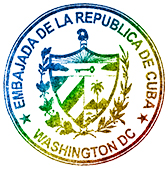
Academic travel to Cuba has been expanded. Students, teachers, school staff, and chaperones can come to Cuba just like studying abroad in Canada, Asia, or Europe.
The popular categories of Educational Activities (which People-to-People travel is part), Support for the Cuban People, Humanitarian Projects, Religious Activities, Professional Research, and Journalism are fulfilling ways to witness Cuba and connect with islanders while partaking in their culture.
What is legal Cuba travel, how does it work, who is in charge?
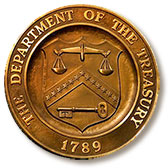
The US Department of Treasury’s Office of Foreign Assets Control (OFAC) oversees Cuba travel. There are twelve themes under which Americans can legally visit Cuba without any government documentation or permission in advance. The twelve categories are known as “general license” travel. There is no actual license issued. It is an honor system. If the purpose of your Cuba travel falls under any of the twelve pre-approved Cuba travel categories, you can hop on a plane and visit Cuba. It’s that simple.
What are the 12 categories of authorized travel to Cuba?
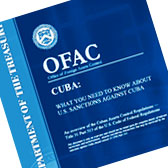
- Educational Activities (study abroad for students, teachers, and school staff), and People-to-People travel for regular Americans is part of Educational travel activities
- Support for the Cuban People
- Professional Research
- Public Performances, Clinics, Workshops, Athletic and other competitions, and Exhibitions
- Journalistic Activity (for electronic and print media reporters, including bloggers)
- Humanitarian Projects
- Religious Activities
- Family Visits (connecting with close relatives in Cuba)
- Activities of private foundations or research or educational institutes
- Exportation, importation, or transmission of information or information materials
- Certain authorized export transactions (for businesses and NGOs)
- Official business of the US government, foreign governments, and specific intergovernmental organizations
List of Cuba travel dos and don’ts

- While in Cuba , your activities must focus on full-time engagement outlined in your chosen travel category.
- It’s best not to stay in Cuban hotels banned by Trump and Biden. Click Worried Boy image for the list.
- Trump and Biden outlawed Cuban rum and Cuban tobacco products in the US. While these sumptuous items cannot be imported to the United States, you can enjoy them during your Cuba stay. No problem!
What are the simplest, most rewarding ways to visit Cuba legally?
Cuba on your own . The island is ideal for sojourners with foreign travel experience and ample planning time. If you speak fluent Spanish, independent travel is tops. This avenue is only possible under the Support for the Cuban People license.
However, individuals can also use the People-to-People option and visit Cuba independently if hosted by a US tour operator and a guide. (You kick back, they do all the work for you!)
Design your own custom private Cuba trip with a US tour operator. Collaborating with a tour operator will ensure unrivaled rewards if you, your family, and your friends prioritize pre-planning, gratifying activities, and guaranteed pricing. US Cuba travel professionals know the best cultural activities, events, entertainment options, eateries, accommodations, transportation, and knowledgeable professional guides.
Prepaid small group Cuba travel packages guarantee your Cuba trip conforms to US legal requirements. Hosted by US agencies, small group tours are nearly all-inclusive, incredibly economical, and offer tons of cultural encounters in a brief period – many more than the most intrepid traveler could assemble on their own. And you’ll always be in the company of forward-thinking fellow Americans and Cubans to look after all your desires.
How do I choose a legitimate Cuba agent or tour operator?
We encourage potential Cuba visitors to browse the internet to shop and compare options. It’s fun and enlightening. You’ll find many travel agencies and tour operators with decades of professionalism offering excellent services at a wide range of pricing. Locate them on Google by searching “ legal cuba tours for americans ”.
- Ensure the tour operator is based in the United States and licensed by OFAC to provide travel services to Americans.
- The tour operator must issue a Certificate of Legal Cuba Travel , guaranteeing your trip conforms to current US Cuba travel regulations.
- Travel companies come and go. Ask how long the travel provider has been in business. Don’t risk your precious travel dollars with fly-by-night operators.
- Learn from the experiences of former travelers. Read the tour operator’s TripAdvisor reviews.
- Ask your friends who’ve traveled to Cuba for their suggestions and recommendations for Cuba tour operators.
Legal Cuba travel essentials for US citizens and residents
- Read the Ultimate Cuba Travel Guide , a summary of nearly three decades of Cuba travel tips and advice.
- All visitors require a passport, valid for one week beyond your Cuba stay.
- Cuba travelers require a Cuba entry visa. Purchase a Cuban Visitor Visa online now.
- Fill out the online Cuban immigration and customs form called D’Viajeros . Review these simplified instructions to breeze through this mandatory pre-departure document in minutes.
- Money US debit cards don’t work in Cuba. Only a handful of hotels in Havana accept US credit cards for in-house services. US dollars cover nearly all cash needs: no need to bring euros or Canadian dollars. Plan trip expenses carefully. See Cash requirements and guidelines while in Cuba.
- US regulations require Americans to retain records of island expenses and activities for five years. Legitimate US-based Cuba tour operators keep these records for you.
Have questions about legal Cuba travel?
Choose your language

Welcome to Cuba
More than you imagined
Plan your holiday to Cuba
Cuba Up-Close
Six Essential Tips for Your Trip to Cuba 2022
From alternative accommodation to bypassing the restrictive internet in Cuba, check out these six essential tips for your trip to Cuba.
Cuba up-close
When is the best time to visit Cuba?
Planning a visit to Cuba? The island offers sunny skies and activities year-round. Learn more about its seasons, weather, and cultural calendar.
Is it safe to travel to Cuba?
Here are some of the best safety tips to follow as you enjoy your trip, and use public transportation in Cuba.
Greatest Waterfalls in Cuba
Imagine finding yourself in Cuba, surrounded by an exuberant natural environment - where the vivacious green mountains stretch out into a splendid blue sky - while the fresh Caribbean seabreeze brightens your face. And on this tropical voyage, you discover a land of waterfalls on every corner of the island.
El Nicho waterfall, Sierra de Escambray
Photo: Shutterstock
Looking for some cool things to do?
Fábrica de arte cubano: a unique experience for art lovers.
Havana houses one of Time Magazine’s Best 100 experiences: the
Trace the Steps of Hemingway Around Havana
Stroll through Cuba’s storied streets with this guide to Ernest
When Is the Best Time to Visit Cuba?
Planning a visit to Cuba? The island offers sunny skies
Castillo del Morro: A Historical Fortress in Havana
Learn about the History of Cuba in the bay of
See Cuban Nature Up-close at Sierra Del Rosario
Reconnect with nature at Cuba's Sierra del Rosario nature reserve.
Top Four Jazz Clubs in Havana
Things to DoTop Four Jazz Clubs in Havana La Zorra
Visit the Museo de la Revolución, and Relive the Fight for Cuba
Havana’s Museo de la Revolución offers a thorough look at
The Top Five Best Bakeries in Havana
Sweeten-up your life with some of the most exquisite pastries
Lesser Known Parts of Cuba to Discover This Year
Escape the crowds and Look further into the Cuban landscape
Where to Drink in Havana: Our Essential List of the Best Bars
Explore our essential list of the best bars in Cuba,
Cuba’s capital has always enjoyed a lively jazz scene, and has produced legendary musicians. It’s time to visit Havana’s best jazz clubs!
La Zorra Y El Cuervo jazz club, Vedado, Havana
Photo: Alamy
Winter activities and tips!
History & Heritage
Visit the Museo de la Revolución
Wildlife & Nature
Ciénaga de Zapata
Castillo del Morro
Beaches & Islands
Hit the Beach at Tarará
Tarará Beach – Havana’s Best Kept Secret
Tired of typical tourist spots? Get to know Tarará beach,
Ciénaga de Zapata: A Natural Cuban Treasure
Encounter the endemic flora and fauna of Matanzas Cuba, and
The Cuban Cigar: Everything You’ll need to know
Learn about the curious and mysterious history of the Cuban cigar, how a Habano is made, and where you can buy quality tobacco like Cohiba cigars.
A Cuban woman with a cigar, Havana
Check Us out on Instagram
@govisitcuba, subscribe to our newsletter.
Get more travel inspiration, tips and exclusive offers sent straight to your inbox
I would like to get Visit Cuba newsletters in my inbox
Paradise for Your Inbox

Cuba Travel Policy
The U.S. Government broadly regulates and restricts transactions involving Cuba under the Cuban Assets Control Regulations 31 CFR Part 515 (CACR) The regulations prohibit persons subject to U.S. jurisdiction from engaging in transactions in which with Cuba or Cuban national has direct or indirect interest, including transactions related to travel. This prohibition includes travel-related transactions that are not authorized under a general or specific license. A general license authorizes the activity or transaction within the regulations if all conditions are met. A specific license is issued on a case-by-case basis by the Office of Foreign Assets Control (OFAC), U.S. Department of the Treasury. See more below under "Activity Restrictions."
The CACR is subject to change, and the detail below was updated under the guidance of the Export Control Office July 29, 2022.
Due to the restricted nature of travel to Cuba, Emory-sponsored travel requires advanced review and approval. This review and approval is specific to travel to Cuba and is in addition to any other department, school, or university travel approvals that may be required.
If you are planning travel to Cuba, please contact Global Services and follow the procedures outlined below.
Procedures for Emory Travel to Cuba
- The reason for your trip
- Expected activities while in Cuba, including a detailed itinerary and potential or confirmed accommodations and engagement partners
- Anticipated travel dates
- Any Emory-owned items or equipment (e.g., laptops) you plan to take with you
Global Services will then work with the Export Control Office to determine if a specific license is needed or if the travel can take place under a general license. Specific licenses can take several months to obtain and are not always granted.
Global Services will contact Emory's Office of Insurance Services to request insurance coverage and documentation for your travel to Cuba. Even if your trip is permitted under a general or specific license, Emory's Office of Insurance Services must be notified ahead of your travel so that coverage can be secured, as appropriate.
Global Services will work with Office of Insurance Services to 1) request workers compensation and general liability coverage for your time in Cuba, and 2) obtain documentation of your International SOS coverage, which may be requested by Cuban authorities upon entry.
This step takes at least 10 days and requires the following information:
- Your full name as it appears on your passport
- Your finalized travel dates
2) Request travel permission as required by your department, school, or by the University .
3) Review the "Guidance for Travelers to Cuba" below to understand traveler responsibilities, restrictions, requirements.
4) Contact Kenya Casey, Director of Global Safety and Security , for a 30-minute briefing on safety, security, and an overview of the resources available to Emory travelers.
5) Review the U.S. State Department's information on visa, entry, and exit requirements for Cuba. As noted there, travelers should contact the Cuban Embassy in Washington to determine the appropriate type of visa for their travel.
6) Make your travel arrangements . Emory's travel vendors can book travel to Cuba. If travelers wish to book through CTM, they are advised to book through a CTM agent rather than the online booking portal when making travel arrangements for Cuba. See details on Emory’s travel vendors here , and please contact Emory Travel if you have any questions about booking travel to Cuba with an Emory agency.
7) Register your flight, hotel, and any other internal transit with International SOS.
Activity Restrictions
Activities prohibited without specific u.s. government authorization.
Any activity that is not described below as being authorized under a general license also requires a specific license from OFAC.
Please note specific licenses can take months to process, so it is important to contact the Export Control Office as soon as possible. Licenses are not guaranteed.
Activities Authorized Under General Licenses
Some activities are authorized under a general license in the CACR, meaning that there is no need to apply for a specific license. These activities include:
Professional Research (see §515.564(a)(1)): Travel-related transactions listed below and other additional transactions directly incidental to professional research are authorized provided that:
- The purpose of the research directly relates to the traveler's profession, professional background, or area of expertise, including area of graduate-level full-time study; and
- The traveler's schedule of activities does not include free time or recreation in excess of that consistent with a full-time schedule of professional research.
Professional Meetings in Cuba (see §515.564(a)(2)): Travel-related transactions listed below and other additional transactions directly incident to attendance at, or organization of, professional meetings or conferences in Cuba are authorized, provided that:
- For a traveler attending a professional meeting or conference, the purpose of the meeting or conference directly relates to the traveler's profession, professional background, or area of expertise, including area of graduate-level full-time study;
- (ii) For a traveler organizing a professional meeting or conference on behalf of an entity, either the traveler's profession must be related to the organization of professional meetings or conferences or the traveler must be an employee or contractor of an entity that is organizing the professional meeting or conference; and
- (iii) The traveler's schedule of activities does not include free time or recreation in excess of that consistent with a full-time schedule of attendance at, or organization of, professional meetings or conferences.
NOTE: An entire group does not qualify for the general license in paragraph (a) of §515.564 merely because some members of the group qualify individually.
Educational Activities (see §515.565): Travel-related transactions listed below and other additional transactions directly incidental to educational activities specified in §515.565(a)(1) and §515.565(a)(2) are authorized. Educational activities most relevant to Emory include:
- Participation in a structured educational program in Cuba as part of a for-credit course sponsored by Emory.
- Noncommercial academic research specifically related to Cuba for the purpose of obtaining an undergraduate or graduate degree.
- Participation in a formal course of study at a Cuban academic institution, provided the course of study will be accepted by Emory for credit toward an undergraduate or graduate degree.
- Teaching at a Cuban academic institution related to an academic program at the Cuban institution, provided the individual is a regular employee of Emory.
- Sponsorship or co-sponsorship of noncommercial academic seminars, conferences, symposia, and workshops related to Cuba or global issues involving Cuba. Emory faculty, staff, and students may also attend such events.
- Establishment of academic exchanges and joint non-commercial academic research projects with Cuban universities or academic institutions.
- The organization of, and preparation for, activities described above by Emory faculty and staff.
- Provision of internet-based courses, including distance learning and Massive Open Online Courses, to Cuban nationals, wherever located, provided that the course content is at the undergraduate level or below.
The Educational Activities general license also allows Emory to sponsor Cuban scholars to teach or engage in other scholarly activities at Emory and to pay the scholar a stipend or salary to do so.
Note: For those activities above with a 10-week minimum stipulation, travel may still be authorized if:
- The Emory employee, Emory paid consultant, or Emory agent is traveling individually; or
- A group of travelers is accompanied by an Emory Representative (e.g., Emory employee, Emory paid consultant, Emory agent) who is subject to U.S. jurisdiction .
Travelers to Cuba must carry a letter from Emory that states their travel meets these requirements. Letters for faculty or staff travelers should state their status as full-time regular Emory employees unless they are accompanied by another Emory Representative with a letter from Emory, provided that the individual traveler is covered by that letter. This letter will be provided to you by the Export Control Office during the trip approval process.
NOTE: If you have questions or are considering traveling to Cuba on Emory business that does not fall into the categories above, please contact Global Services.
Guidance for Travelers to Cuba
Travel-related transactions authorized under general licenses.
See § 515.560(c)
- Transportation to, from, and within Cuba; Cuban visas. All transportation-related transactions ordinarily incident to travel to, from, and within Cuba, including the acquisition of Cuban visas, are authorized.
- Living expenses in Cuba. All transactions ordinarily incident to travel within Cuba, including payment of living expenses and the acquisition in Cuba of goods for personal consumption there, are authorized.
- Importation of Cuban merchandise. The purchase or other acquisition in Cuba and importation as accompanied baggage into the United States of merchandise is authorized, provided that the merchandise is imported for personal use only. This does NOT authorize importation of Cuban-origin alcohol and tobacco products.
- Importation, export and transmission of information and informational materials such as publications, films, posters, phonograph records, photographs, microfilms, microfiche, tapes, compact disks, CD ROMs, artworks, news wire feeds, and other information and informational articles, as defined in 31 C.F.R. §515.332, that are fully created and in existence at the date of the transaction are generally exempt from the prohibitions and regulations. It should be noted that the exemption does not permit substantive or artistic alteration or enhancement of information or informational materials, or to the provision of marketing and business consulting services.
- Credit and debit cards. All transactions incident to the processing and payment of credit and debit cards involving authorized transactions are also authorized. Travelers should check with their financial institution before traveling to Cuba to determine whether the institution has established the necessary mechanisms for its credit or debit cards to be used in Cuba.
Limitations on General Licenses by the Cuba Restricted List: Prohibited Hotels, Businesses, Entities
The U.S. Department of State maintains a list of Cuban entities under the control of, or acting for or on behalf of, the Cuban military, intelligence, or security services or personnel. This list includes several hotels and accommodations facilities in major Cuban cities.
Emory travelers are prohibited from conducting any transactions with parties on the list, including lodging at any listed lodging facility. U.S. persons are prohibited from engaging in a direct financial transaction with entities and subentities identified on the list, referred to as the Cuba Restricted List .
Travel with University Laptop and Equipment
Generally, Emory travelers traveling under the general licenses outlined above can rely on an export control license exception called Support for the Cuban People (SCP) to travel with their Emory-issued laptop. This exception requires an electronic filing with U.S. Customs called Electronic Export Information (EEI) . The same license exception may be available for other items. Please notify Global Services of all items that you plan to take on your trip. The Export Control Office will assist with evaluating license exceptions and submitting any required filings.
Record-keeping Requirements
U.S. regulations require travelers to Cuba to retain detailed documentation of their itinerary in Cuba. The itinerary must reflect a full-time schedule of activities that directly pertains to the permitted trip purpose. For example, those traveling to participate in a permitted educational program must have an itinerary that documents their full-time engagement in such a program.
Travelers to Cuba must also maintain records of all of their travel-related transactions, including those:
- Related to transportation and ordinary travel expenses (e.g., lodging, living expenses, meals and other items for personal consumption).
- Related to the purchase of Cuban goods to be brought bring back to the U.S.
- Incident to the processing and payment of credit cards, debit cards, stored value cards, traveler’s checks, and similar mechanisms (as well as the opening and closing of any bank accounts, if relevant).
Travelers should retain their itinerary and records for five years .
- U.S. Department of Treasury, Frequently Asked Questions Related to Cuba
- September 23, 2020: “Treasury Amends Regulations to Restrict Revenue Sources to the Cuban Regime”
- State Department List of Restricted Entities and Subentities Associated with Cuba
- State Department List of Cuba Prohibited Accommodations
- U.S. Department of State, Travel Information for Cuba
If you have questions about this policy or other matters related to travel to Cuba, please contact Global Services .

IMAGES
COMMENTS
Travel to Cuba for tourist activities remains prohibited by statute. However, the Department of Treasury's Office of Foreign Assets Control (OFAC) has issued general licenses for 12 categories of travel. ... In accordance with the National Security Presidential Memorandum on Strengthening the Policy of the United States Toward Cuba of June ...
Call us in Washington, D.C. at 1-888-407-4747 (toll-free in the United States and Canada) or 1-202-501-4444 (from all other countries) from 8:00 a.m. to 8:00 p.m., Eastern Standard Time, Monday through Friday (except U.S. federal holidays). See the State Department's travel website for the Worldwide Caution and Travel Advisories.
The 12 categories of travel licenses for US citizens. US law states that US citizens can only travel to Cuba on a 'general license' based on one of 12 different approved categories, which include family visits, educational and religious activities, public performances and exhibitions, and the vague sounding 'support for the Cuban people.'Licenses are self-qualifying (there's no long ...
U.S. officials have said that a popular authorized way for groups of travelers to visit Cuba — called "people-to-people" trips — will be back at some point. The Trump administration ...
May 16, 2022, 5:57 PM PDT. By Carmen Sesin. The Biden administration announced Monday it will reverse some Trump-era restrictions on Cuba, including limits on travel and remittances, and boost ...
U.S. to Cuba travel policy. Flying to Cuba from or through the U.S. for tourism is not allowed. There are 13 permitted reasons for travel: People-to-people exchanges (for travel related transactions purchased prior to June 5, 2019) If you aren't traveling for one of the 13 reasons, there are 2 other ways to enter Cuba: With a license issued by ...
For most European citizens, a valid passport is required during your stay in Cuba. Some countries, like Spain, require the passport to be valid for at least 6 months. It's also important to note that if you plan to travel to the United States after visiting Cuba, you'll need a visa. This is because the electronic system for travel authorization ...
U.S. law states that those who want to go to Cuba need to qualify for a "general license" based on one of 12 approved categories. The 12 categories currently authorized by U.S. government, for travel to Cuba are: Family visits. Official business of the U.S. government, foreign governments, and certain intergovernmental organizations.
Visit the COVID-19 crisis page on travel.state.gov for country-specific information related to COVID-19. Check with airlines, transportation providers, and destination countries for how COVID testing and vaccine requirements might impact travel. Assistance: U.S. Embassy Havana, Cuba 55 Calzada, La Habana, Cuba +(53) (7) 839-4100
Nearly five years ago, the Trump administration put policies into place that severely restricted travel between the United States and Cuba. On Monday, the Biden administration moved to undo some of those measures and make travel between the two countries somewhat easier once again. The U.S. State Department issued a statement that among the new ...
Travel Advisory. January 5, 2024. Cuba - Level 2: Exercise Increased Caution. C. Reissued with updates to crime information. Exercise increased caution in Cuba due to crime. Country Summary: Petty crime is a threat for tourists in Cuba. Also, violent crime, including armed robbery and homicide, sometimes occurs in Cuba.
Booking Cuba Travel Insurance Reminders. Don't assume that coverage that comes standard with your travel credit card will cover you - most of these policies do not cover travel insurance for Cuba, specifically! Cuba is a unique travel destination and comes with some challenges, travel insurance being one of them.; Don't wait to book last minute with the travel insurance company you ...
1. Double-check your insurance. You are required to have medical insurance to visit Cuba and will need to bring digital or printed proof of your policy. Random checks are made at the airport. If you arrive without insurance, you'll be asked to buy a Cuban policy at the airport for US$30. 2.
He ended "wet foot, dry foot," a decades-old policy allowing Cubans who arrived in the United States without a visa to become permanent U.S. residents. These new policies marked a new era of boom for Cuba's tourism. In May 2016, the first cruise ship from the United States called on the island, and by August 2016, the first regularly ...
According to Squaremouth data, the average Cuba travel insurance policy cost travelers roughly $200. Visiting Cuba From the U.S. For more than 60 years, U.S travel to Cuba has been a complex issue. With that said, there are plenty of reasons why Cuba, home to more than 400 white-sand beaches and over 3,500 miles of coastline, has remained a ...
Placed Cuba back on the list of state sponsors of terrorism. Rejected the legitimacy of the Cuban regime, reopening the possibility of US involvement in regime change. Additionally, Trump aimed to alter Cuban travel policy by revoking individual people-to-people travel and reinstating educational and group travel categories.
Check with your auto insurance policy's international coverage, and get more coverage if needed. Make sure you have liability insurance. Flying. ... Use the Healthy Travel Packing List for Cuba for a list of health-related items to consider packing for your trip. Talk to your doctor about which items are most important for you.
A year ago, President Trump announced tougher policies concerning Cuba, reinstating travel and trade restrictions eased by the historic Obama-era opening between Washington and Havana. June 22, 2018
Travel to Cuba. U.S. government restrictions on travel to Cuba require that all travelers to Cuba from U.S. institutions travel under specific licenses or categories. Most Cornell travelers to Cuba fall under two categories: educational tours or professional research or conferences. We can help you navigate the shifting restrictions and ...
You must show proof of valid health insurance to enter Cuba. All health insurance policies are recognized in Cuba, except those issued by U.S. insurance companies. However, the Cuban immigration authorities will decide which proof of health insurance is acceptable. Proof of health insurance may be: an insurance policy; an insurance certificate
Note: This policy change went into effect in November 2017. For a complete guide to Cuba travel regulations, read this article on how to travel to Cuba. President Trump recently announced changes to the Cuba travel policy for Americans. While you can still travel to Cuba, there are a number of new rules to keep in mind. The changes were ...
2024 Legal Cuba travel for Americans. Since 1997, we've distilled ever-changing, often mind-boggling US-Cuba travel regulations. We've kept Americans informed about Cuba travel openings by presidents Clinton, Obama and Biden, and clawbacks under G.W. Bush and brutal clampdowns by Trump.
Greatest Waterfalls in Cuba. Imagine finding yourself in Cuba, surrounded by an exuberant natural environment - where the vivacious green mountains stretch out into a splendid blue sky - while the fresh Caribbean seabreeze brightens your face. And on this tropical voyage, you discover a land of waterfalls on every corner of the island.
Procedures for Emory Travel to Cuba. 1) Contact Global Services to facilitate Export Control Office and Office of Insurance Services review: As soon as you learn of potential travel to Cuba, send the following information to Global Services : The reason for your trip. Expected activities while in Cuba, including a detailed itinerary and ...